All 27 candidates for Cincinnati City Council responded to a WVXU survey asking their policy opinions on several key issues. You can learn more about each candidate below.
All nine seats are on the ballot, and all seats are at-large — meaning each Cincinnati voter can vote for up to nine candidates, and the top nine vote-getters will win a seat. Twenty-six candidates will appear on the ballot; in addition, there is one certified write-in candidate.
As always, it's officially a nonpartisan election and voters won't see party identifications for the candidates on the ballot. All three of Cincinnati's political parties — Democratic, Republican, and the Charter Committee — have endorsed slates of candidates.
All 27 candidates also were invited to participate in a live interview on Cincinnati Edition. Most candidates have agreed to participate and the interviews will take place between Sept. 29 and Oct. 7. Links to those conversations will be added to this page as they become available.
Context on topics included in the survey
The survey questions focus on some of the biggest issues facing City Council this year; various responses from candidates reference additional topics. Here's some context on many of those issues.
The zoning reform effort known as Connected Communities: Sponsored by Mayor Aftab Pureval, this ordinance changed zoning regulations primarily in neighborhood business districts and along major transit corridors. Within specific parts of the city, it allowed housing up to four units, even in some areas that previously only allowed single family homes. It also reduced or eliminated density caps and parking minimums for both residential and commercial developments.
Connected Communities passed in June 2024 with a 6-3 vote:
- Voting in favor: Council members Jeff Cramerding, Mark Jeffreys, Reggie Harris, Anna Albi, Seth Walsh, and Meeka Owens. All except Harris are on the ballot in 2025; he resigned from Council in 2024 to take a job with the Biden administration.
- Voting against: Vice Mayor Jan-Michele Lemon Kearney and Council members Scotty Johnson and Victoria Parks. Kearney and Johnson are on the ballot in 2025; Parks is not running for re-election.
Read more about Connected Communities:
- Answering questions about the 'Connected Communities' plan to reform zoning code
- New online dashboard tracks impact of Connected Communities zoning reform
- A Council minority is working to change the 'Connected Communities' zoning reform
Hyde Park Square development: A controversial proposed development project that sparked significant community opposition. Council voted 7-2 in April to grant the project the status of Planned Development. That designation allowed buildings of up to 85.5 feet (above the current zoning maximum of 50 feet), and allowed the inclusion of a hotel.
- Voting in favor: Council members Jeff Cramerding, Mark Jeffreys, Anna Albi, Seth Walsh, Meeka Owens, Victoria Parks, and Evan Nolan. All except Parks are on the ballot in 2025; she is not running for re-election.
- Voting against: Vice Mayor Jan-Michele Lemon Kearney and Council member Scotty Johnson. Both are on the ballot in 2025.
Opponents responded by organizing a referendum, collecting more than 13,000 valid signatures to put the zone change on the ballot. The development team rescinded their application and asked City Council to repeal the zoning change, avoiding the ballot.
Read more about the Hyde Park Square development:
- What's next for the Hyde Park Square development?
- Analysis: Hyde Park Square development will be a campaign issue, referendum or not
Summer crime spike: Crime always goes up during the warmer months, but Cincinnati had a more pronounced spike than usual this summer, primarily in Over-the-Rhine. There also were a few high-profile crime incidents, including a brawl outside a bar in July that went viral thanks to videos on social media. That fight prompted state and federal politicians to weigh in.
The city's response to the crime spike has included new foot patrols and other police visibility efforts; establishing a Street Crimes Task Force; expanded use of drones; new citywide youth curfew rules as well as a new extended curfew district Downtown; restrictions on Red Bike and food trucks in parts of the city; and accepting help from the Ohio State Patrol.
Read more recent coverage on crime in Cincinnati:
- How to find and understand Cincinnati crime data
- LISTEN: What more can Cincinnati and Hamilton County officials do to reduce violent crime?
- Officials to Downtown residents on public safety: 'We are not finished'
- In 'ACT for Cincy,' Cincinnati has a unified strategy for violence reduction
Financial and budget topics: These include the 2023 voter-approved sale of the Cincinnati Southern Railway and the Futures Commission report with recommendations for the city's financial stability (including a recommendation to increase the income tax, which several candidates endorse).
Read more on the city's finances:
- Council passes final city budget with first railway sale revenue
- Cincinnati Southern Railway Trust tops $1.8 billion
- Here's all the infrastructure Cincinnati could spend railway revenue on
- Cincinnati's pension fund trustees ask City Council for more action to resolve funding shortage
City Council Candidates
Scroll through this page to see all the survey responses, or click a name in the list to jump directly to that candidate. The candidates are listed in alphabetical order by last name.
Candidates were asked to respond to the survey by Sept. 22; a few responded up to a week later due to technical problems or personal circumstances.
Each candidate submitted their own bio. Responses have only been edited for typos and clarity.
- Anna Albi
- Audricia Brooks
- Laketa Cole
- Jerry Corbett
- Jeff Cramerding
- Don Driehaus
- Brian Ennix (certified write-in candidate)
- Kevin Farmer
- Gary Favors
- Steven P. Goodin
- Ryan James
- Mark Jeffreys
- Dawn Johnson
- Scotty Johnson
- Jan-Michele Lemon Kearney
- Liz Keating
- Dale Mallory
- Linda Matthews
- Brandon Nixon
- Evan Nolan
- Meeka D. Owens
- Raffel Prophett
- Stephan Pryor
- Christopher E.C. Smitherman
- Seth Walsh
- Donald Washington
- Aaron Weiner
Anna Albi
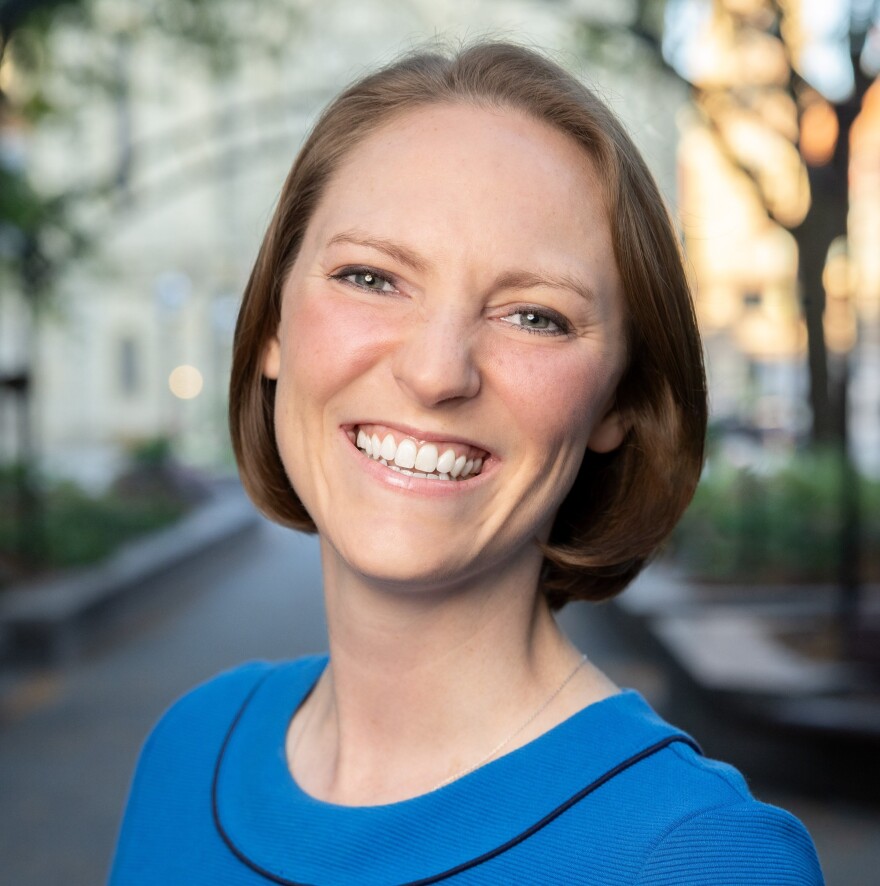
Party endorsement: Democratic
Age: 33
Neighborhood: Madisonville
Campaign website: albiforcincinnati.com
Incumbent: Albi was first elected in 2023. She currently serves on Council's Budget and Finance Committee, Equitable Growth and Housing Committee, Healthy Neighborhoods Committee, and Public Safety and Governance Committee.
Listen to Albi's interview on Cincinnati Edition.
Bio: Anna (she/her) is in her first term on Cincinnati City Council. Anna’s focus in office is fostering a safe community and reducing gun violence by addressing root causes such as food insecurity, housing and access to health care.
Before being elected to City Council, Anna served as local group lead for Moms Demand Action and recording secretary for Madisonville Community Council. In addition, Anna is a member of the Daughters of the American Revolution and serves as a Cincinnati Democratic Party Vice Chair and Precinct Executive for the Hamilton County Democratic Party. She is also a graduate of LEAD Ohio and a 2023 fellow for the New Leaders Council for Southwest Ohio.
Anna grew up in Anderson Township, the daughter of a small business owner and public defender and the sister of two U.S. Marines. Anna’s husband works locally as a brand manager, and together they are dog parents to a rescue German Shepherd named Trooper. Anna earned her undergraduate and graduate degrees at Carnegie Mellon University and worked as a Senior Strategic Communication Consultant before joining City Council.
With federal stimulus now depleted, the city faces a projected budget deficit over the next few years. What do you think City Council needs to do to ensure financial stability?
This Council is dedicated to being fiscally responsible, which means making tough decisions to pass a structurally balanced budget. Ever since the state cut revenues to local governments, eliminated the estate tax and slashed revenue sharing in half, it’s been a struggle for cities to manage increasing costs. For FY2026, we had to make 2% budget cuts across every department and to our community partners to address the deficit.
Thanks to the voters, we sold the railroad and established a $1.6 billion trust fund to support the city’s infrastructure in perpetuity to address the $400 million capital deficit. This year, the railway sale proceeds provided us with $56 million to spend on infrastructure and next year will bring an additional $58 million — which is more than 2x what the $25 million lease agreement provided.
Additionally, as part of our carryover budget “waterfall,” each year, this Council has voted to top off our reserve funds which ensures we maintain a high credit rating. It is this type of fiscal discipline that will help ensure increased stability even in the face of state and federal headwinds.
Council has faced accusations of not listening to the community on issues like the Connected Communities zoning reform in 2024 and the Hyde Park Square development in 2025. As a member of City Council, how would you balance community input with the desire to add housing?
Residents across all 52 neighborhoods are almost unanimous in their calls for more housing in Cincinnati. That’s why I’m proud to be part of a City Council that created 3x more affordable units in three years compared to the previous five years. Additionally, we also created a dedicated source of revenue for the Affordable Housing Trust Fund and invested more than $25 million into that fund for housing projects.
I think we need to clarify and standardize the process for community engagement for development, specifically with community councils. I am committed to increasing our capacity for neighborhood plans so we can engage residents to think more broadly about how they’d like to see their neighborhoods grow over time. Right now, because so many neighborhood plans are decades old, every development becomes a potential battleground versus part of a comprehensive strategy. If we can update and maintain more relevant neighborhood plans, my hope is that all sides (residents, developers and the city) can move more quickly to grow and develop our community.
Crime has dominated headlines this summer, with national attention on the city. How do you think City Council should work to both reduce crime and address a public perception of safety?
My focus is fostering safe communities. To me, a safe community is NOT one where the National Guard rolls down our streets. A safe community is one where everyone is paid enough to afford a roof over their head, food on the table, and access to health care. That is why I believe firmly in a “yes, and” approach to tackling gun violence and broader safety initiatives.
As of 9/13, shootings are down ~20% and violent crime citywide is down slightly from last year, but there has been an increase in property crime Downtown. That is why I continue to push my colleagues and the administration to provide funding for crime prevention through environmental design (CPTED) measures such as cameras, lights, and landscaping. Built and natural environments can have a major impact in reducing crime and enhancing individuals’ sense of safety.
On 9/8, City Council voted to allocate an additional $5.4 million in funding for a variety of safety measures, including additional police visibility, increased cameras and lighting, community cleanup and youth outreach.
Finally, we know helping residents meet their basic needs is vital to public safety, which is why I remain committed to dedicating 1.5% of our budget to supporting our Human Services partners.
If elected, what do you plan to introduce and accomplish during the next two years on Council?
My top priority is reducing gun violence and fostering community safety by providing access to food, shelter, health care and good-paying jobs. We must remain steadfast in our commitment to doing everything we can to address the gun violence epidemic.
If re-elected, I will continue to lead the charge in City Hall to prioritize addressing food access for our most vulnerable. Sadly, in Cincinnati, the average food insecurity rate is 21.5%; however, in neighborhoods most impacted by gun violence, the rate can be 2-3x higher. Addressing chronic hunger is vital to ensuring our residents, especially our kids, are able to grow and thrive, which is why I’m proud to have championed > $1 million in funding for food access in our neighborhoods hit hardest by gun violence.
Additionally, I am committed to continuing my work to increase gun safety by leading the Secure Firearm Storage Action Team. This team is dedicated to 1) reducing the number of guns stolen out of cars, 2) educating caretakers about secure firearm storage, especially when kids are around, and 3) promoting increased education for medical professionals about how to talk with patients about gun safety in the context of suicide prevention and unintentional shootings by children.
Which major Cincinnati event do you enjoy most and why? (i.e., BLINK, Cincinnati Music Festival, Oktoberfest etc.)
My husband and I absolutely love the Asian Food Festival! In fact, this year, we welcomed my sister-in-law and her family to Cincinnati specifically for the festival. We simply love the amazing array of delicious food options and amazing entertainment.
Audricia Brooks
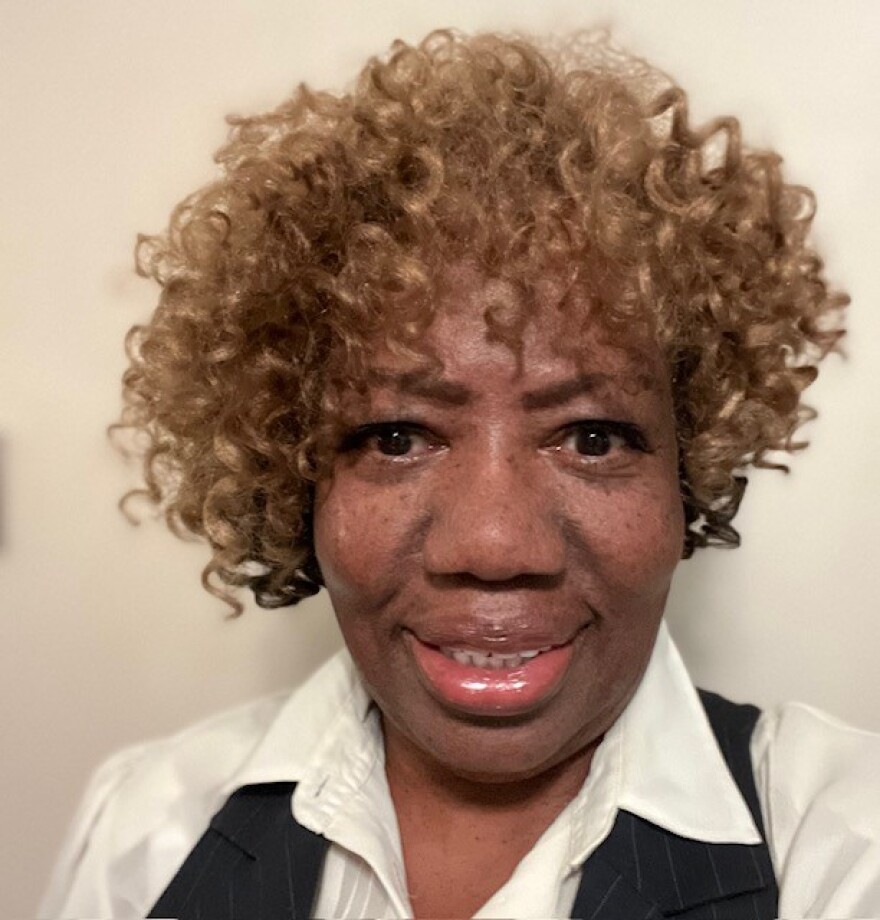
Party endorsement: None
Age: 71
Neighborhood: North Avondale
Campaign website: audricia4cincinnati.com
Listen to Brooks' interview on Cincinnati Edition.
Bio: Audricia Brooks is a native of Cincinnati, educated in Cincinnati Public Schools. She is a graduate of the University of Cincinnati, BSN and University of Kentucky, MSN, credentialed as a Family Nurse Practitioner by the American Nurses Credentialing Center. She was employed at the Cincinnati VA Medical Center for 29+ years. During that time she was the director of the collective bargaining unit for registered nurses. She is married to her childhood sweetheart and they have eight children.
With federal stimulus now depleted, the city faces a projected budget deficit over the next few years. What do you think City Council needs to do to ensure financial stability?
Increase the income earnings tax and use it to support the fire department, affordable and low income housing.
Council has faced accusations of not listening to the community on issues like the Connected Communities zoning reform in 2024 and the Hyde Park Square development in 2025. As a member of City Council, how would you balance community input with the desire to add housing?
Include the neighborhood community councils early in the inception and planning process. Promote "buy in" early. This will help generate trust and transparency.
Crime has dominated headlines this summer, with national attention on the city. How do you think City Council should work to both reduce crime and address a public perception of safety?
Our youth are participating in some amazing programs in the community and schools. It would be good to highlight those accomplishments. Youth employment also helps to occupy their time and enhance positive self perceptions. It would also help if our local news and media wouldn't continue to repeatedly regurgitate images of altercations.
If elected, what do you plan to introduce and accomplish during the next two years on Council?
I support proportional representation/rank choice voting and established community benefits agreements (CBA). Rank choice voting is the fairest way to vote. And the CBA's would hold developers accountable to communities. The community as well as the developers can benefit from the change in our neighborhoods.
Which major Cincinnati event do you enjoy most and why? (i.e., BLINK, Cincinnati Music Festival, Oktoberfest etc.)
I like salsa dancing on the Square. It's fun and engaging. Plus it's good exercise.
Laketa Cole
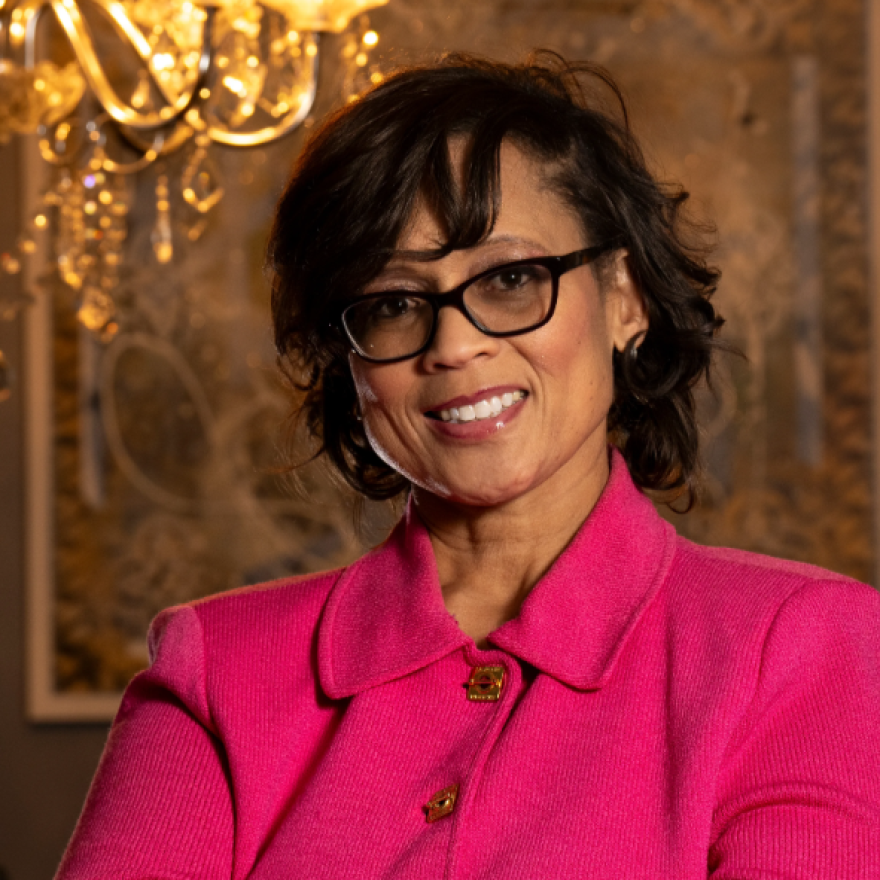
Party endorsement: Charter Committee
Age: 52
Neighborhood: Bond Hill
Campaign website: laketacole.com
Former Council member: appointed in 2003, elected in 2003, served through 2011.
Listen to Cole's interview on Cincinnati Edition.
Bio: Laketa Cole is a proud daughter of Cincinnati — born, raised, and educated in the Queen City. An Aiken High School graduate and Bond Hill resident, she serves as Vice President of the Bond Hill Community Council. At just 29, she made history as the youngest African American woman appointed to Cincinnati City Council, serving from 2003–2010 as President Pro Tem, Finance Chair, and Vibrant Neighborhoods Chair. On Council, Laketa created the Neighborhood Business District Support Fund, sponsored green building legislation, and championed homeownership. She secured $1.5 million for youth jobs, $1 million for violence prevention, and launched the Cole Train rec and pool pass programs. She expanded civic access through the Neighborhood Walk program and evening Council meetings. After Council, Laketa served with the Public Utilities Commission of Ohio and the City of Cincinnati. Today, she is a full-time entrepreneur and founder of Jon Li Cleaning, named after her son. Laketa is running for City Council to keep her promise once again: to show up, speak out, and stand up for the people. When you go to the Poll, VOTE for COLE!
With federal stimulus now depleted, the city faces a projected budget deficit over the next few years. What do you think City Council needs to do to ensure financial stability?
With federal stimulus funds gone, we must take a hard look at the budget. That means eliminating duplicate services already handled by the county or state and building stronger partnerships with Hamilton County on programs and projects. Every tax dollar must be used wisely and efficiently.
Council has faced accusations of not listening to the community on issues like the Connected Communities zoning reform in 2024 and the Hyde Park Square development in 2025. As a member of City Council, how would you balance community input with the desire to add housing?
Council has to do a better job of listening. On issues like Connected Communities and Hyde Park Square, the process left residents feeling ignored. I believe in bringing all stakeholders — residents, developers, and neighborhood leaders — to the table. Collaboration, compromise, and transparency are key to adding the housing we need while respecting neighborhood voices.
Crime has dominated headlines this summer, with national attention on the city. How do you think City Council should work to both reduce crime and address a public perception of safety?
We won’t reduce crime by just spending more on policing. Real safety comes from investing in the neighborhoods where crime happens most. That means youth programs, job opportunities, and stability in housing. Closing food trucks early isn’t a solution — it only hurts small businesses. We also need leadership that controls the narrative, not allowing outsiders to define our city as unsafe.
If elected, what do you plan to introduce and accomplish during the next two years on Council?
I will increase access and transparency at City Hall by maintaining an open-door policy, quarterly evening meetings, and to have Healthy Neighborhoods Committee meetings in our actual neighborhoods. I want to bring back CCY, which gave youth valuable work and life skills, and work to streamline permitting to make it easier for residents and businesses to navigate.
Which major Cincinnati event do you enjoy most and why? (i.e., BLINK, Cincinnati Music Festival, Oktoberfest etc.)
The Cincinnati Music Festival is my favorite tradition. Beyond the joy it brings, it generates over $100 million annually, making it the city’s biggest economic driver. It highlights local culture, small businesses, and community pride while boosting our entire region.
Jerry Corbett
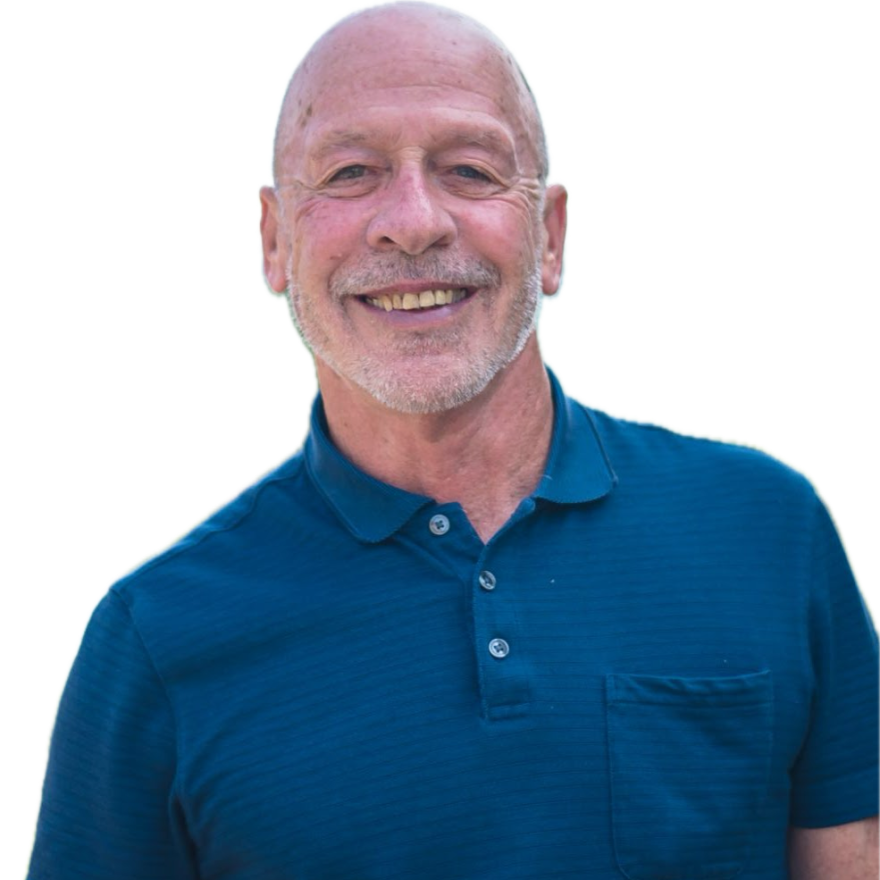
Party endorsement: None
Age: 70
Neighborhood: Mt. Washington
Campaign website: corbettforcincinnati.com
Listen to Corbett's interview on Cincinnati Edition.
Bio: I am a lifelong Cincinnati resident. I grew up on the West Side of Cincinnati and have lived on the East Side since the early 1980s. I have two daughters and two granddaughters who live in the Greater Cincinnati area. I have been a Democrat my entire life. I was a member of the United Autoworkers for 10 years and a Steelworker for one year. I began employment at Greater Cincinnati Water Works in 1989 and retired as Assistant Superintendent in 2020.
With federal stimulus now depleted, the city faces a projected budget deficit over the next few years. What do you think City Council needs to do to ensure financial stability?
The vast majority of the annual budget is dedicated to maintaining and operating city services. I feel I have a somewhat unique perspective relative to the other candidates. During my time at GCWW and working across other city departments, I was able to identify inefficiencies in what had been accepted practices. I implemented changes that resulted in millions of dollars worth of savings. There are a lot of changes that could be made to save money by outsourcing less and doing more work in house. This applies to all city departments. We need to give our workforce the tools and support to succeed.
Council has faced accusations of not listening to the community on issues like the Connected Communities zoning reform in 2024 and the Hyde Park Square development in 2025. As a member of City Council, how would you balance community input with the desire to add housing?
I was born and raised in Cincinnati. The arrogance of this Council to disregard community voices to impose their will is insulting. Both community input and adding more housing can be accomplished as we see with the developer and the Hyde Park community continuing to work toward a resolution.
Crime has dominated headlines this summer, with national attention on the city. How do you think City Council should work to both reduce crime and address a public perception of safety?
City Council should be proactive in meeting the needs for public safety. If there is a looming shortage of police patrolling the streets this needs to be addressed as soon as possible. A strong focus of my campaign is to address the ongoing mental health crisis. We need to shine a light on this problem by convening local mental health experts on a regular basis. The mental health aspect is an underlying cause of many crimes as well as contributing to the growing homeless crisis. The City Council members were slow in addressing the events of the Downtown brawl. This allowed outside forces to paint an ugly picture of Cincinnati for political purposes.
If elected, what do you plan to introduce and accomplish during the next two years on Council?
Number one would be to identify potential savings in the city budget. Secondly, I would propose a panel of mental health professionals to convene on a regular basis to address the ongoing mental health crisis.
Which major Cincinnati event do you enjoy most and why? (i.e., BLINK, Cincinnati Music Festival, Oktoberfest etc.)
I like BLINK simply because it is an event that everyone of all ages can enjoy. It’s very much a family occasion.
Jeff Cramerding

Party endorsement: Democratic
Age: 51
Neighborhood: Price Hill
Campaign website: jeffcramerding.com
Incumbent: Cramerding was first elected in 2021 and re-elected in 2023. He's currently serving as Chair of the Budget and Finance Committee, also serving on the Equitable Growth and Housing Committee and Climate, Environment and Infrastructure Committee.
Listen to Cramerding's interview on Cincinnati Edition.
Bio: Jeff Cramerding is an attorney and the only Council member living on the city's West Side. He is very active in Price Hill and was a founding board member or Price Hill Will. He is a two-term incumbent Council member and chairs the finance committee.
With federal stimulus now depleted, the city faces a projected budget deficit over the next few years. What do you think City Council needs to do to ensure financial stability?
The city needs to focus on basic city services — police, fire, and trash, and parks/rec, as well as core city infrastructure such as streets and sidewalks. The Cincinnati Futures Commission report, composed by civic, business, and labor leaders, also provides a clear roadmap to financial stability. Many of its recommendations need to be implemented, while others need more study.
Council has faced accusations of not listening to the community on issues like the Connected Communities zoning reform in 2024 and the Hyde Park Square development in 2025. As a member of City Council, how would you balance community input with the desire to add housing?
The city needs to have a consistent structure and process for community development. This would be a big improvement and a win for neighborhoods and developers.
Crime has dominated headlines this summer, with national attention on the city. How do you think City Council should work to both reduce crime and address a public perception of safety?
City Council, the manager, and the police chief need to focus on a more visible and community-engaged police force as the foundation.
If elected, what do you plan to introduce and accomplish during the next two years on Council?
Announce a city economic development strategy to catalyze development with a focus on major transit corridors (Glenway and Warsaw, Reading Road, and Hamilton Avenue) and neighborhoods that have not seen new housing or development.
Which major Cincinnati event do you enjoy most and why? (i.e., BLINK, Cincinnati Music Festival, Oktoberfest etc.)
The Flying Pig Marathon — I often wear pig shirts while hiking and running in other states. So many people stop me and ask if I have run The Pig. It is a nationally recognized running event.
Don Driehaus
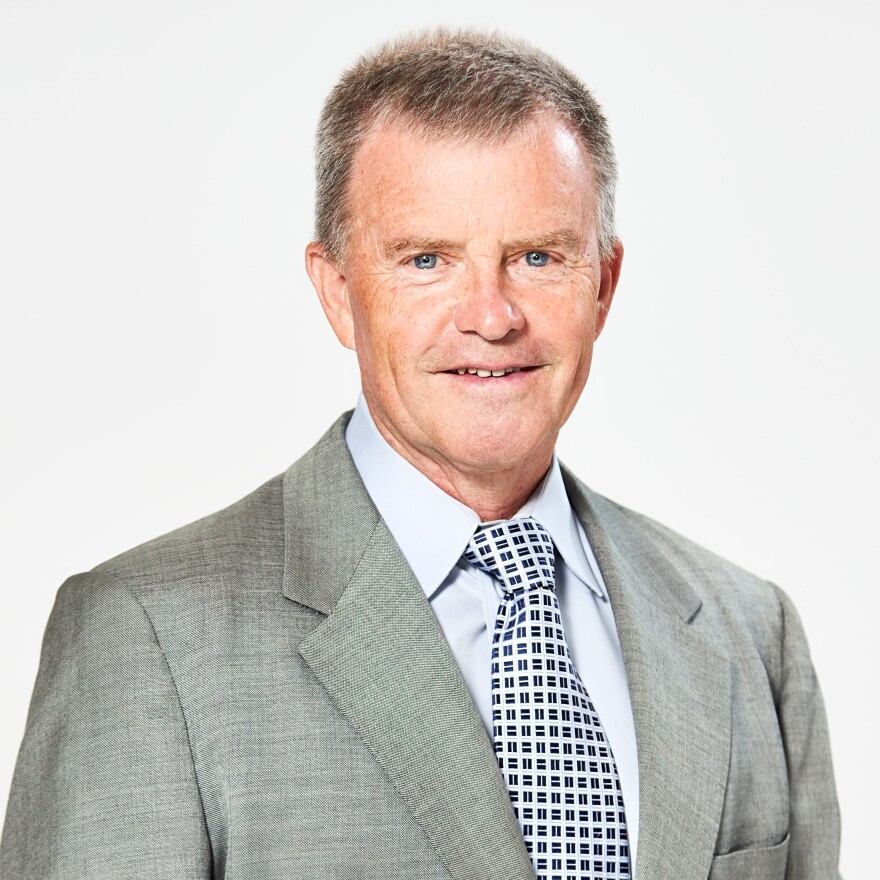
Party endorsement: Charter Committee
Age: 66
Neighborhood: West Price Hill
Campaign website: dondriehausforcincinnati.org
Listen to Driehaus' interview on Cincinnati Edition.
Bio: I am a longtime Cincinnati resident and I raised my family here. I am a board member with the Price Hill Safety Community Action Team, I am a board member for the West Price Hill Community Council and I volunteer at the Freestore. I am the treasurer for the Incline in Price Hill and am a business owner. I have 30 years professional experience in finance and am actively invested in the community.
With federal stimulus now depleted, the city faces a projected budget deficit over the next few years. What do you think City Council needs to do to ensure financial stability?
Start to charge bad landlords and operators who are free-riding on city services. Serious budgeting measures need to be addressed.
Council has faced accusations of not listening to the community on issues like the Connected Communities zoning reform in 2024 and the Hyde Park Square development in 2025. As a member of City Council, how would you balance community input with the desire to add housing?
I would look to balance the community concerns with development initiatives. Right now the Council seems to rubber-stamp developers without thinking of the consequences.
Crime has dominated headlines this summer, with national attention on the city. How do you think City Council should work to both reduce crime and address a public perception of safety?
Increase staffing for police and fire. Work on improving moral in the rank and file. Find a real way to decrease the excessive calls for service.
If elected, what do you plan to introduce and accomplish during the next two years on Council?
Initiatives to pave and clean the streets. Initiatives to deal with the vagrancy.
Which major Cincinnati event do you enjoy most and why? (i.e., BLINK, Cincinnati Music Festival, Oktoberfest etc.)
BLINK is a vivid display of a brighter Cincinnati.
Brian Ennix (certified write-in candidate)
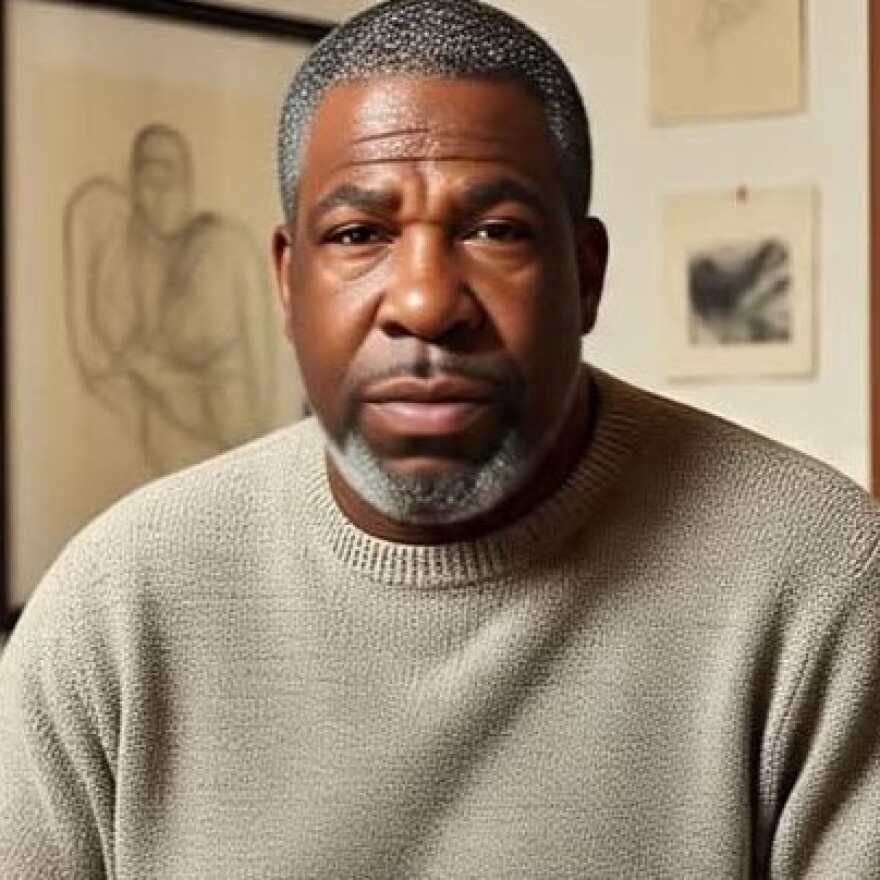
Party endorsement: None
Age: 63
Neighborhood: Avondale
Campaign website: N/A
Listen to Ennix's interview on Cincinnati Edition.
Bio: Hamilton county resident for 63 years, the father of three, grandfather 15, and a great-great grandfather of three. Always putting family and others before himself.
With federal stimulus now depleted, the city faces a projected budget deficit over the next few years. What do you think City Council needs to do to ensure financial stability?
Higher wages and affordable housing to help stability.
Council has faced accusations of not listening to the community on issues like the Connected Communities zoning reform in 2024 and the Hyde Park Square development in 2025. As a member of City Council, how would you balance community input with the desire to add housing?
By listening to community at large. They know how they want their community environment to expand.
Crime has dominated headlines this summer, with national attention on the city. How do you think City Council should work to both reduce crime and address a public perception of safety?
Quit with slow response, anything can be a serious matter. Anytime someone calls it needs addressed as soon as possible and they need to take time to listen or refer it to an investigator.
If elected, what do you plan to introduce and accomplish during the next two years on Council?
I would try to make sure all the citizens and Hamilton county are safe at home and on the street.
1) No more minors standing in front of someone's business asking business patrons for money.
2) Try working on increasing wages.
3) Work on a rent system that works for the people of the county.
4) Try to get a rent cap for apartments with 3 or more bedrooms.
5) Try to get the city to make some of the old schools into some affordable efficiency units
6) Work on helping the schools raise the attendance and academic levels of our children to have a facility that will facilitate the young children that want to be entrepreneurs; they sell their water and sodas or juice, they might print shirts, they might sell bead bracelets or necklaces, might sell photos of things, three days a week if they like. Half is theirs and the other goes into an account for them and always accompanied by a parent or guardian to get them out of the streets.
Which major Cincinnati event do you enjoy most and why? (i.e., BLINK, Cincinnati Music Festival, Oktoberfest etc.)
All of them. I'm a Cincinnatian.
Kevin Farmer
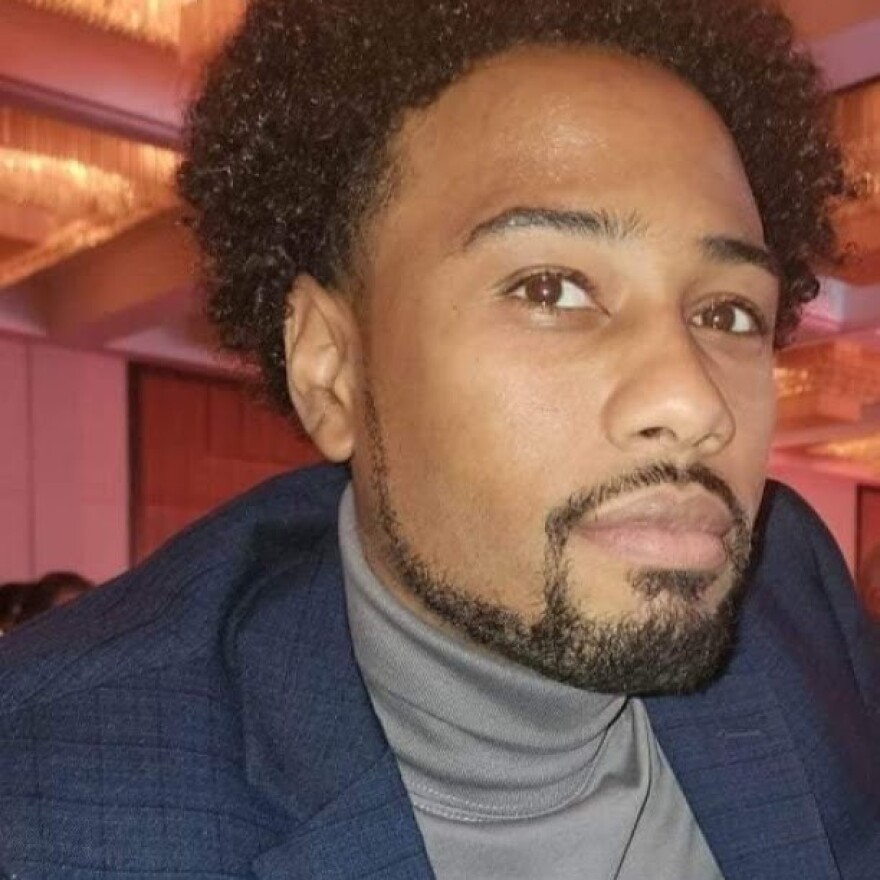
Editor's note: Kevin Farmer submitted responses to this survey before he became the alleged victim of a crime. Earlier this year, he was charged with domestic violence and assault; the charges were dismissed when the alleged victim did not appear in court. Farmer addressed both situations in an interview on Cincinnati Edition.
Party endorsement: None
Age: 36
Neighborhood: Avondale
Campaign website: https://www.votekevinfarmer.com/
Bio: I’m running for City Council — not for power, but for purpose. For the youth in our neighborhoods who only see police tape and broken promises. For the single moms and working families trying to stretch $20 into a week of meals. For the returning citizens who are ready to work but can’t find a door open. For all of us who love our city but are tired of being left out of the conversation.
With federal stimulus now depleted, the city faces a projected budget deficit over the next few years. What do you think City Council needs to do to ensure financial stability?
Conduct a comprehensive budget review, strengthen revenue streams (without overburdening residents), explore public-private partnerships (PPPs), tap into state or regional funding opportunities, implement long-term financial planning, engage the public and build trust, avoid short-sighted fixes.
Council has faced accusations of not listening to the community on issues like the Connected Communities zoning reform in 2024 and the Hyde Park Square development in 2025. As a member of City Council, how would you balance community input with the desire to add housing?
Lead with transparency and honesty, deepen and improve community engagement, prioritize equity in whose voices are heard, design with community, not just for it, deliver benefits alongside housing, don’t equate “listening” with always saying yes.
Listening to the community doesn’t always mean agreeing with every demand. My job is to listen respectfully, weigh all perspectives, and then make informed decisions in the public interest including the interests of future residents who aren’t in the room.
I would explain decisions clearly and own them even if they are controversial because leadership means being accountable, not just popular.
Evaluate and adjust over time.
Crime has dominated headlines this summer, with national attention on the city. How do you think City Council should work to both reduce crime and address a public perception of safety?
Focus on data-driven, community-centered crime reduction, strengthen police accountability and community trust, invest in long-term safety through prevention, tackle the public perception head on, coordinate across agencies and jurisdictions, listen and act responsibly.
City Council must lead with clarity, compassion, and courage. We can reduce crime without criminalizing poverty, and we can improve public confidence without ignoring legitimate fears. Safety isn’t just about what people feel it’s about what they experience, and whether they feel seen and protected by their city.
If elected, what do you plan to introduce and accomplish during the next two years on Council?
Collaborating with CPD: To effectively address crime and public safety, City Council should implement a series of strategic initiatives aimed at both reducing criminal activity and improving public perception, particularly within marginalized communities. Key components of this plan include: Rebranding Police Relations in the Black Community. To rebuild trust and foster better relationships with communities of color, particularly Black communities, it is crucial to invest in the rebranding of the police force. This involves implementing community policing strategies, where officers engage meaningfully with local residents, and investing in cultural competency training. By empowering officers with the skills to understand and respect the unique dynamics of Black communities, we can cultivate stronger relationships and reduce tensions. This approach will also include public-facing campaigns to highlight positive police-community interactions and emphasize a commitment to justice and equity.
By focusing on these strategic initiatives, City Council can work toward building safer, healthier, and more cohesive communities, while simultaneously addressing the systemic challenges that contribute to crime and mistrust of law enforcement.
Which major Cincinnati event do you enjoy most and why? (i.e., BLINK, Cincinnati Music Festival, Oktoberfest etc.)
"Rosemary’s Babies Co. hosts the annual Mommies Rock event each May, engaging the Avondale community in a meaningful and non-violent way. The event provides critical resources for families, fostering connection, support, and empowerment for young parents. It stands out as my absolute favorite event in Cincinnati for its positive impact and its commitment to uplifting the community."
Gary Favors
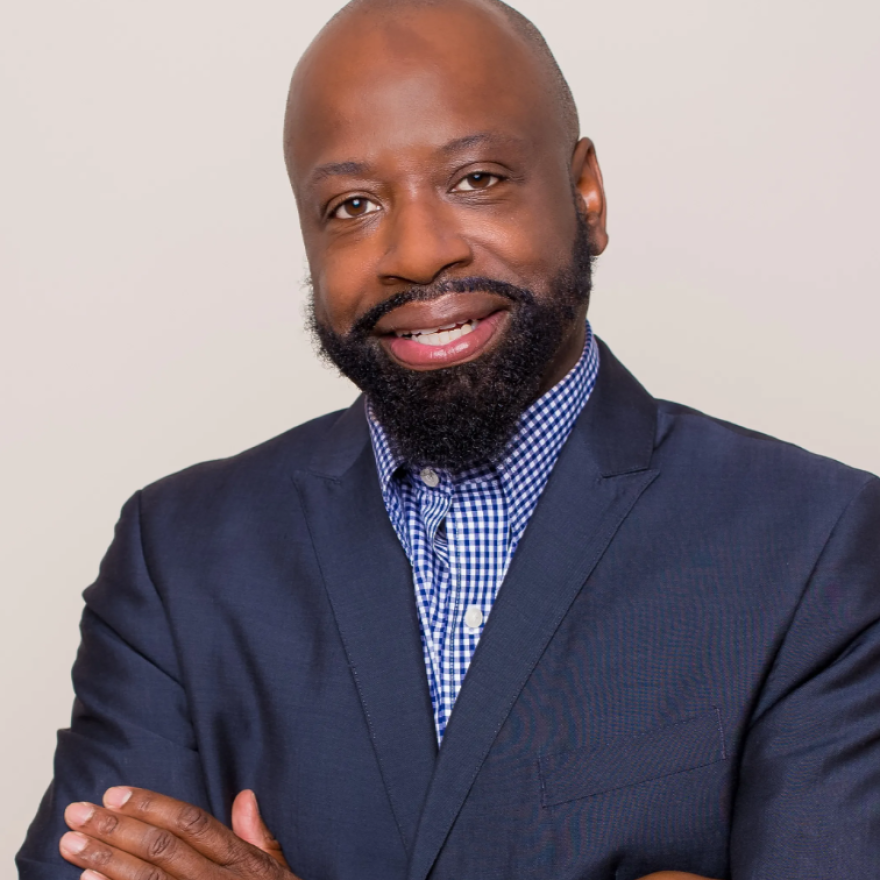
Party endorsement: Republican
Age: 60
Neighborhood: North Avondale
Campaign website: favorsforcincinnati.com
Listen to Favors' interview on Cincinnati Edition.
Bio: I grew up in Over-the-Rhine, attending St. Francis Seraph School and Roger Bacon High School before earning my degree at Carson-Newman College in Tennessee. After graduation, I served in the Army as a Captain during the Gulf War, where I fought in Desert Storm and Desert Shield and was awarded two commendation medals. That experience prepared me to lead and to work hard for a stronger Cincinnati.
When I returned home, I began a 25-year career with Cincinnati Public Schools, teaching special education and Montessori while also earning two master’s degrees in education and administration from Northern Kentucky University and Xavier University. I remain deeply committed to my students and their families.
As a graduate of the Cincinnati City Council Leadership Program, I am passionate about addressing our city’s critical needs, expanding affordable housing, reducing poverty, improving pedestrian safety, and supporting our first responders. I know firsthand the urgency of these issues, having even been a victim of car theft in my own driveway. I will also champion our educators and push for strong summer programs to help close learning gaps for our children.
My Army and education training has made me battle tested and leadership ready!
With federal stimulus now depleted, the city faces a projected budget deficit over the next few years. What do you think City Council needs to do to ensure financial stability?
To save taxpayer dollars and make Cincinnati government more efficient, I support a series of common-sense initiatives recommended by the Futures Commission. These proposals will reduce costs while improving services.
First, by enforcing the newly passed vacant building registry, we can hold property owners accountable and recover millions now spent maintaining abandoned properties. Introducing “lift fees” for institutions that repeatedly call the fire department for non-emergencies will also ensure taxpayers are not burdened with avoidable costs.
Similarly, charging reckless drivers for damage to guardrails, streetlights, and other public properties already done successfully in Columbus and Kansas City — will shift costs back to those responsible.
We can also save money by restructuring park services. Transferring select properties to Great Parks of Hamilton County will reduce city expenses while keeping these spaces open and accessible to the community.
At the same time, we must invest in modern technology. Upgrades to the 311 call center will streamline services, improve responsiveness, and make government more accessible to residents. Smarter fleet management — through strategic vehicle replacement and construction of a new garage — will cut long-term maintenance costs and improve city operations.
Together, these initiatives represent a responsible, forward-looking approach. By holding property owners accountable, reducing waste, modernizing services, and managing resources more wisely, we can protect taxpayers, improve efficiency, and put Cincinnati on a stronger financial path.
Council has faced accusations of not listening to the community on issues like the Connected Communities zoning reform in 2024 and the Hyde Park Square development in 2025. As a member of City Council, how would you balance community input with the desire to add housing?
City Council must balance citywide needs with neighborhood concerns. Growth brings jobs, affordability, and a stronger tax base, but also raises questions about density and character. By streamlining rules, removing barriers, and encouraging diverse housing options, Council can meet future demand. At the same time, it must address valid local concerns, push back against misinformation, and educate residents on how affordable housing supports stability, prosperity, and stronger communities.
Crime has dominated headlines this summer, with national attention on the city. How do you think City Council should work to both reduce crime and address a public perception of safety?
I believe every Cincinnati neighborhood should be safe and welcoming. That’s why I support smart short-term strategies, visible policing focused on high-crime areas, rapid city responses to issues like trash and blight, and programs that stop violence before it starts using trusted community messengers. Technology and stronger victim services will also help protect residents and speed responses.
At the same time, as we work to fully staff the police department, we must implement long-term strategies to address the root causes of violence. Investing in youth programs, job training, and neighborhood improvements gives young people opportunities and strengthens our communities. Expanding community policing, civilian responder programs, and hospital-based interventions ensures residents get the right help when they need it.
By acting quickly on immediate threats and investing in long-term solutions, we can make Cincinnati safer today and build stronger, thriving neighborhoods for the future.
To measure our success in reducing crime, the Council should track key indicators as well as listening to our community. We will monitor violent and property crime rates, shooting incidents, and high-risk areas to see if our programs are working. We will evaluate emergency response times and case resolutions, while tracking repeat offenses to ensure justice and rehabilitation are effective. Beyond the numbers, we will gauge residents’ sense of safety through surveys, focus groups, and community feedback, while measuring participation in neighborhood engagement programs. True success means not just fewer crimes, but neighborhoods where people feel safe, supported, and connected.
If elected, what do you plan to introduce and accomplish during the next two years on Council?
I have set three priorities for my time on Council:
Public safety is critical for all. I will work to fully staff our first responders with highly qualified professionals. We must form creative solutions to attract these individuals and provide the support necessary to maintain their loyalty to the community. We must talk with those who work in these fields and seek their ideas for solutions. We must commit to open honest communication from all stakeholders to solve these critical issues.
Pedestrian safety: We have all recently seen the horrific results when our streets are unsafe to cross, especially around school zones. With children starting back to school, I have great concerns. Increased manpower will make this more feasible and thus safer for all. Again, we will need to be creative to solve this problem. We must address this with the surrounding community stakeholders and search for solutions that involve every resource the community has available, including volunteers.
Affordable housing alternatives for the homeless in our city are crucial. While walking to work in the mornings, citizens do not need to be stepping over individuals that are sleeping on the streets. Moving the homeless to different parts of the city is a futile solution. We may not need to reinvent the wheel, but we must do our due diligence and seek out the solutions that will work for our community.
Which major Cincinnati event do you enjoy most and why? (i.e., BLINK, Cincinnati Music Festival, Oktoberfest etc.)
The Cincinnati Music Festival has quickly become one of my favorite events in the city. Its long history and growth have helped put Cincinnati’s music scene on the map, and this year I finally had the chance to experience it for myself. Standing along the Ohio River with music filling the air, I was struck not only by the incredible performances but also by how seamlessly everything came together — from the organization inside the stadium to the energy outside of it. The crowd was just as diverse as the music, and the atmosphere was upbeat, welcoming, and full of joy. Beyond the entertainment, I couldn’t help but appreciate the festival’s impact, bringing over $100 million into Cincinnati’s economy. For me, it was more than just a concert — it was a celebration of community, culture, and the spirit of the city.
Steven P. Goodin
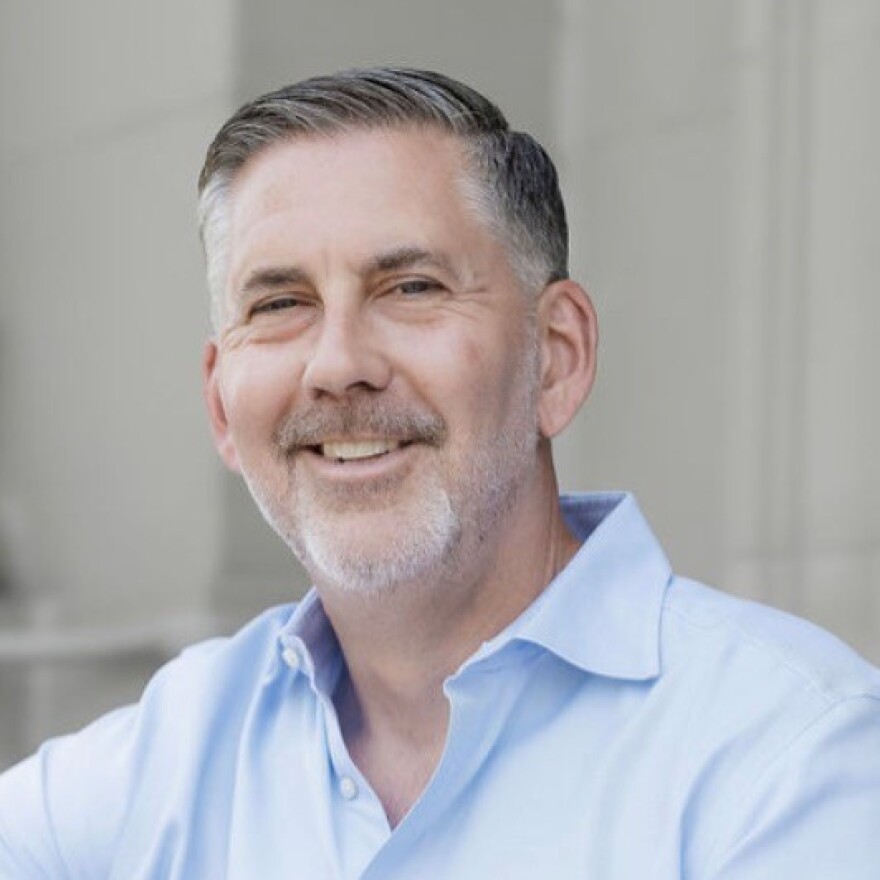
Party endorsement: Charter Committee
Age: 55
Neighborhood: Clifton
Campaign website: www.votegoodin.com
Former Council member: Goodin was appointed in Dec. 2020, with an unsuccessful run to retain his seat in 2021.
Listen to Goodin's interview on Cincinnati Edition.
Bio: Former City Council member Steve Goodin has served as the leader of the Charter Committee for the past two years. An experienced litigator and former prosecutor, Army officer and Peace Corps volunteer, Steve brings a wealth of private and public sector experience to Council. He also has served on a variety of nonprofit boards, including the SORTA (Metro) board and as chairman of the Center for Addiction Treatment.
With federal stimulus now depleted, the city faces a projected budget deficit over the next few years. What do you think City Council needs to do to ensure financial stability?
As the co-author of the first COVID-era budget, I am well aware of the city’s temporary dependence on federal dollars to support its daily operations. Now, we must address wasteful spending on Council pet projects while at the same time addressing generational needs in public safety (both in terms of police staffing and fire equipment and buildings). They may well require us to consider an increase in the earnings tax.
Council has faced accusations of not listening to the community on issues like the Connected Communities zoning reform in 2024 and the Hyde Park Square development in 2025. As a member of City Council, how would you balance community input with the desire to add housing?
This Council has been an utter and complete failure in terms of community engagement — and nowhere has this failure been more manifest than in the development approval process. We need to overhaul our zoning processes from scratch, moving toward a form-based code and setting common-sense parameters for community council input. Our current “process” is blatantly political, fails to produce needed new housing and does not respect the historic character of our iconic neighborhoods.
Crime has dominated headlines this summer, with national attention on the city. How do you think City Council should work to both reduce crime and address a public perception of safety?
We are in the midst of a slow-rolling police staffing crisis and Council continues to hide its head in the sand. We are more than 100 officers below our mandated complement — and even that complement (set in 2005) is incorrect given current population trends and new Downtown and OTR attractions. There is very little community policing (especially walking patrols) and an over-reliance on complaint-driven responses. As a result, many neighborhoods are simultaneously over- and under-policed. We need more officers and we need to increase our investment in proven youth programs and trade apprenticeships to provide much-needed opportunity for those at-risk.
If elected, what do you plan to introduce and accomplish during the next two years on Council?
In addition to the investments in public safety and housing reform noted above, we desperately need a Quality of Life subcommittee to push the administration to take neighborhood concerns more seriously. Graffiti, litter, homelessness and open-air prostitution and drug use plague many of our neighborhoods — and the administration’s response has been consistently lacking and never questioned by Council. We must end the echo chamber at 801 Plum Street.
Which major Cincinnati event do you enjoy most and why? (i.e., BLINK, Cincinnati Music Festival, Oktoberfest etc.)
That one’s easy — the Northside Fourth of July Parade (and Rock and Roll Carnival). Still the most irreverent and real public event in the Midwest.
Ryan James

Party endorsement: Democratic
Age: 29
Neighborhood: West End
Campaign website: ryanjamesforcincinnati.com
Listen to James' interview on Cincinnati Edition.
Bio: Ryan James is a nonprofit leader and public servant who experienced homelessness as a teenager and was raised by a single mother. After navigating systems that were not built to serve families like his, Ryan made it his life’s work to expand opportunity for others. From housing and youth development to workforce support, he has led programs that help people move from crisis to stability. Now, Ryan is running to become the youngest Black man ever elected to Cincinnati City Council. His campaign is rooted in the belief that public office should belong to working people who understand struggle, who know how to listen, and who are ready to lead with compassion. He is committed to building a Cincinnati defined by opportunity, access, and trust.
With federal stimulus now depleted, the city faces a projected budget deficit over the next few years. What do you think City Council needs to do to ensure financial stability?
With federal relief funding now spent down, the city is facing a real budget challenge. To keep Cincinnati financially stable, City Council must focus on responsible spending, smart partnerships, and fair revenue strategies. We should start by reviewing existing programs to ensure we are funding what truly works. We should also build stronger cost-sharing agreements with large institutions and explore ways to attract new revenue without placing the burden on working families. That means being cautious about raising taxes and focusing instead on strategies that bring long-term return for our residents. We also need to strengthen public-private partnerships and look for cost-efficient ways to deliver key services. I bring nonprofit budgeting experience and a deep understanding of how to stretch limited resources while still investing in people. I would fight to protect the services families depend on while making sure our dollars go further for everyone.
Council has faced accusations of not listening to the community on issues like the Connected Communities zoning reform in 2024 and the Hyde Park Square development in 2025. As a member of City Council, how would you balance community input with the desire to add housing?
Community voice is essential to good governance. I believe in growing our city without leaving our neighbors behind. As a Council member, I would prioritize early and meaningful engagement with communities before proposals reach a vote. That means not just listening, but responding to resident concerns in clear and transparent ways. I believe we can expand housing while protecting the character and stability of our neighborhoods. When I served at the United Way, we made major decisions by centering lived experience. I would bring that same approach to City Hall. Growth should not be something we do to people. It should be something we do with people. I believe trust is built when residents see their feedback reflected in final policies. I would work to create a clear public record of how community input influences legislation and ensure that new housing is matched with real investment in infrastructure, affordability, and quality of life. My goal is to make Cincinnati a city where everyone has the opportunity to live, grow, and thrive.
Crime has dominated headlines this summer, with national attention on the city. How do you think City Council should work to both reduce crime and address a public perception of safety?
A lot of the violent crime we see is rooted in cycles of retaliation, and it tends to be concentrated in neighborhoods that have been underinvested in for generations. If we are serious about public safety, we have to be just as serious about addressing those root causes. That means giving young people real options, not just more policing. Jobs, mentorship, mental health care, safe places to go after school — that is how you interrupt violence before it starts.
At the same time, I believe our law enforcement needs to be properly equipped and supported to respond quickly when emergencies happen. We cannot ignore response times or visibility. But safety is not just about enforcement. It is about connection. People want to feel like they belong in their neighborhood, that they are seen and valued. That is how you build trust.
We also have to talk about perception. When folks do not feel safe going Downtown or bringing their kids to community events, that hurts all of us. We need to bring life back into our public spaces through holding exciting community events while lowering barriers to entry like parking and ticket costs
If elected, what do you plan to introduce and accomplish during the next two years on Council?
If elected, I plan to focus on making Cincinnati work for working people. That means giving residents the tools to not just survive but truly thrive.
I want to scale up programs that create accessible pathways to job growth, workforce training, and mentorship. We should be building an economy where people can upskill without needing to leave the city or navigate red tape. I also believe we need to boost entertainment, culture, and civic life to keep our young professionals here and excited about living in Cincinnati.
We cannot talk about opportunity without talking about affordability. I plan to invest in youth through expanded access to affordable child care, while also driving housing development that meets the needs of families at every income level. And as people continue to face rising costs, I believe the city has a role to play in delivering thoughtful, local economic crisis relief to keep families stable.
My platform is rooted in the belief that when we invest in our people, our neighborhoods grow stronger. I am committed to building a Cincinnati that gives every resident the chance to move forward.
Which major Cincinnati event do you enjoy most and why? (i.e., BLINK, Cincinnati Music Festival, Oktoberfest etc.)
When the Bengals went to the Super Bowl. BLINK is second.
Mark Jeffreys
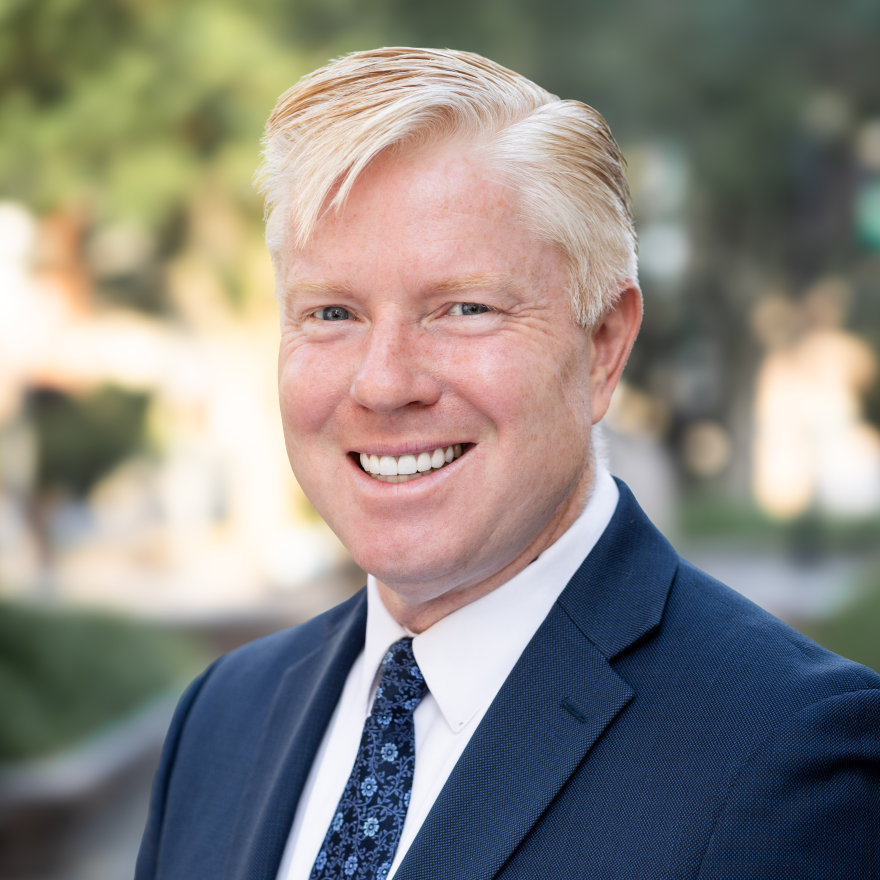
Party endorsement: Democratic
Age: 56
Neighborhood: Clifton
Campaign website: votejeffreys.com
Incumbent: Jeffreys was first elected in 2021 and re-elected in 2023. He is currently serving as chair of the Equitable Growth and Housing Committee, as well as serving on the Budget and Finance Committee, Climate, Environment and Infrastructure Committee, and the Public Safety Committee.
Listen to Jeffreys' interview on Cincinnati Edition.
Bio: Four years ago, I stepped away from running my business fulltime to enter public service. I was not born into politics or privilege. I started out as a janitor while my family was on food stamps. After losing my mother at 15, I worked as a union laborer to put myself through college, then attended business school and spent nearly 17 years at P&G, rising to be an executive before becoming a serial entrepreneur. As a private citizen, I helped secure a $1M P&G donation to create Smale Park’s goVibrantscape, transforming 4.5 acres of dilapidated parking lot into a world-class space. I left my CEO role in data analytics because I knew I could make a wider impact, especially for kids who grew up like me. Since my 2021 election, I have focused on improving the quality of life in our city. I now serve as Vice President of OKI Regional Council of Governments (first Cincinnati rep in 25 years), Chair of the Equitable Growth & Housing Committee, and sit on several others. As a proud father of four CPS children, I am committed to making Cincinnati safer, cleaner, and greener for all.
With federal stimulus now depleted, the city faces a projected budget deficit over the next few years. What do you think City Council needs to do to ensure financial stability?
First, tighter budget management at the start of the fiscal year to avoid massive carryovers that create whiplash and make residents think the city is flush with cash when it is not. Second, expand shared services within the city (e.g. Cincinnati Parks managing Rec. greenspace) and with the county (e.g. Great Parks and back-office services) — efforts I’m actively advocating for. Third, prevent costs from being pushed onto taxpayers by implementing “you break it, you pay for it” fees, ‘LIFT’ fees for fire runs, and seeking ODOT and Highway Patrol reimbursement for interstate enforcement and snow removal on interstates when other municipalities do not bear that cost. Fourth, keep railroad sale proceeds dedicated to deferred infrastructure maintenance, as promised to voters, not operations. Fifth, leverage AI to cut costs, such as optimizing energy use in buildings and routing for public works, which could save millions. This balanced approach ensures fiscal discipline while keeping Cincinnati Safer, Cleaner, and Greener and prioritizing core public safety and services.
Council has faced accusations of not listening to the community on issues like the Connected Communities zoning reform in 2024 and the Hyde Park Square development in 2025. As a member of City Council, how would you balance community input with the desire to add housing?
Balancing community input with housing growth requires a more clear, predictable process. Currently, that process is broken. I support a streamlined engagement framework where developers and residents know exactly what to expect, including the number and types of public meetings. There should be no surprises. I also believe that we all need to get on the same page on why growth matters. With skyrocketing rents and housing costs as well as projected budget deficits, growth is going to be critical to our city’s future. The opposite is decline: declining populations, declining city earnings tax, which all mean cuts in services. We have experienced that before and it means a lower quality of life. As the city grows in population we add earnings tax (for every 1K new residents we add ~$1M in earnings tax on average). To meet our fiscal challenges, we need growth. And to lower housing costs overall and eliminate the gap in housing that we currently have, we need to build more housing of every kind. Both paint a picture of balance — ensuring that when we have development we are engaging with residents, but also rowing in the same direction when it comes to why growth and additional housing are so critical to Cincinnati’s future.
Crime has dominated headlines this summer, with national attention on the city. How do you think City Council should work to both reduce crime and address a public perception of safety?
We must invest in both short-term and long-term solutions to address real and perceived public safety issues. First, we need more police officers. We’ve authorized 2x more hires in the past 4 years than prior years, but remain 160 short. With 150 more authorized this year, we will be near full strength, putting more officers on the street and easing overtime. Second, keep investing in crime-fighting tools like drones, cameras, and lighting in public areas. Third, continue enforcing curfew while creating positive outlets for youth through recreation and jobs. Fourth, expand opportunity by funding career pathways, (which we invested $1M in this year), and programs like Building Futures that connect adults to apprenticeships. Fifth, tackle blight, a contributor to crime — the Vacant Building Registration I spearheaded will help eliminate 2,100 blighted buildings starting in 2026. Finally, hold nuisance properties and problem entertainment establishments accountable. Public safety is our #1 job, and we must remain vigilant to continue making progress.
If elected, what do you plan to introduce and accomplish during the next two years on Council?
My platform focuses on Safer, Cleaner, Greener for all of Cincinnati, which means improving the quality of life for residents in tangible ways. I have a few core priorities. First, continue to focus on public safety, but also better public services including bringing back the “Litter & Graffiti Patrol.” We need a graffiti-free Cincinnati and to get our neighborhoods cleared of litter. Second, put together a concrete plan for our Big Audacious Housing Goal which is to build 40,000 units of housing in the next 10 years. This will reduce housing costs across the board and improve Cincinnati’s overall economy. Third, tackle the vexing problem of lead paint, which impacts up to 500-1,000 children per year who have future opportunities taken away from them when their IQ and behavior is impacted to no fault of their own. We need a plan to address this moral and economic issue, which is a contributor to long-term poverty. Finally, focus on making sure that we have a fiscally sound budget going forward and efficiently run local government, which will mean a better quality of life for everyone.
Which major Cincinnati event do you enjoy most and why? (i.e., BLINK, Cincinnati Music Festival, Oktoberfest etc.)
BLINK — because it’s innovative, inspiring and brings people together. It shows what is possible in our city when we come together and the power that art has to foster a sense of community at a time when that is needed more than ever.
Dawn Johnson

Party endorsement: Charter Committee
Age: 42
Neighborhood: North Avondale
Campaign website: dawnforcincy.com
Listen to Johnson's interview on Cincinnati Edition.
Bio: Dawn Johnson is a wife, mother, doula, and lifelong Cincinnatian who has turned personal loss and community love into a mission for public service. As President of the North Avondale Community Council, she has led the neighborhood through a transformative Master Plan, positioned it to become Cincinnati’s first full historic district, and is now in the process of launching a Community Development Corporation to drive responsible investment. Her leadership extends beyond her neighborhood, Dawn chaired the Vice Mayor’s Task Force on Connected Communities reform, ensuring residents’ voices shaped the city’s housing and development policies. She brings the same advocacy she shows as a doula, supporting women and families through some of life’s most critical moments, to her work for Cincinnati’s 52 neighborhoods. Dawn’s campaign for City Council is built on four pillars: Safer Streets, Civic Development, Youth Empowerment, and Community Wellness. With a deep belief that “It’s the Dawn of a New Day,” she is committed to building a Cincinnati where families are safe, neighborhoods thrive, and growth reflects the people who call this city home.
With federal stimulus now depleted, the city faces a projected budget deficit over the next few years. What do you think City Council needs to do to ensure financial stability?
The loss of federal stimulus dollars means Cincinnati must return to disciplined, community centered budgeting. City Council must prioritize essential services like public safety, housing, and infrastructure while cutting waste and holding departments accountable for results. We should pursue new revenue through smart growth, attracting businesses that create good paying jobs, and ensure development deals include enforceable community benefits. Above all, we must adopt long term planning instead of crisis to crisis budgeting so residents are not asked to pay for City Hall’s short term decisions.
Council has faced accusations of not listening to the community on issues like the Connected Communities zoning reform in 2024 and the Hyde Park Square development in 2025. As a member of City Council, how would you balance community input with the desire to add housing?
As someone who chaired the Vice Mayor’s Task Force on Connected Communities, I saw firsthand that top down planning erodes trust. Housing is important, but the process matters. On Council, I will require developers to engage neighborhoods early and often, and tie incentives to enforceable Community Benefit Agreements. Growth cannot come at the expense of identity, culture, or displacement. Cincinnati can expand housing while preserving what makes each neighborhood unique if residents are true partners in shaping the vision.
Crime has dominated headlines this summer, with national attention on the city. How do you think City Council should work to both reduce crime and address a public perception of safety?
Safety requires balance. We must hire and retain more officers to ensure reliable response times, while also addressing the root causes of violence. That means investing in trauma recovery, youth jobs, and housing stability alongside policing. I believe in accountability for youth and for parents, but also in services that stop cycles of violence before they begin. Council should also invest in communication, transparent crime data, community forums, and visible collaboration between residents and first responders to rebuild trust. True safety is when families feel both protected and respected in every neighborhood.
If elected, what do you plan to introduce and accomplish during the next two years on Council?
If elected, I will focus on fixing what is broken and building a Cincinnati where every neighborhood can thrive. My priorities are safety, growth, youth empowerment, and community wellness. I will support a long term staffing plan for firefighters and police, expand violence interruption, and create a Trauma Recovery Center for teens. I will ensure railroad sale dollars are invested as voters intended, repeal and replace Connected Communities with Pathway Communities that expand homeownership and demand community benefits, attract tech companies and entrepreneurs, pilot a four day work week, empower youth through a Citywide Youth Council, and launch a Bereavement Fund for families. It’s the Dawn of a New Day.
Which major Cincinnati event do you enjoy most and why? (i.e., BLINK, Cincinnati Music Festival, Oktoberfest etc.)
I love BLINK because it showcases the creativity and energy of our city while bringing people together across backgrounds and neighborhoods. It transforms familiar streets into something magical and reminds us of what is possible when art, technology, and community spirit come together. Events like BLINK put Cincinnati on the national stage and also give local residents a chance to see their city in a new light.
Scotty Johnson
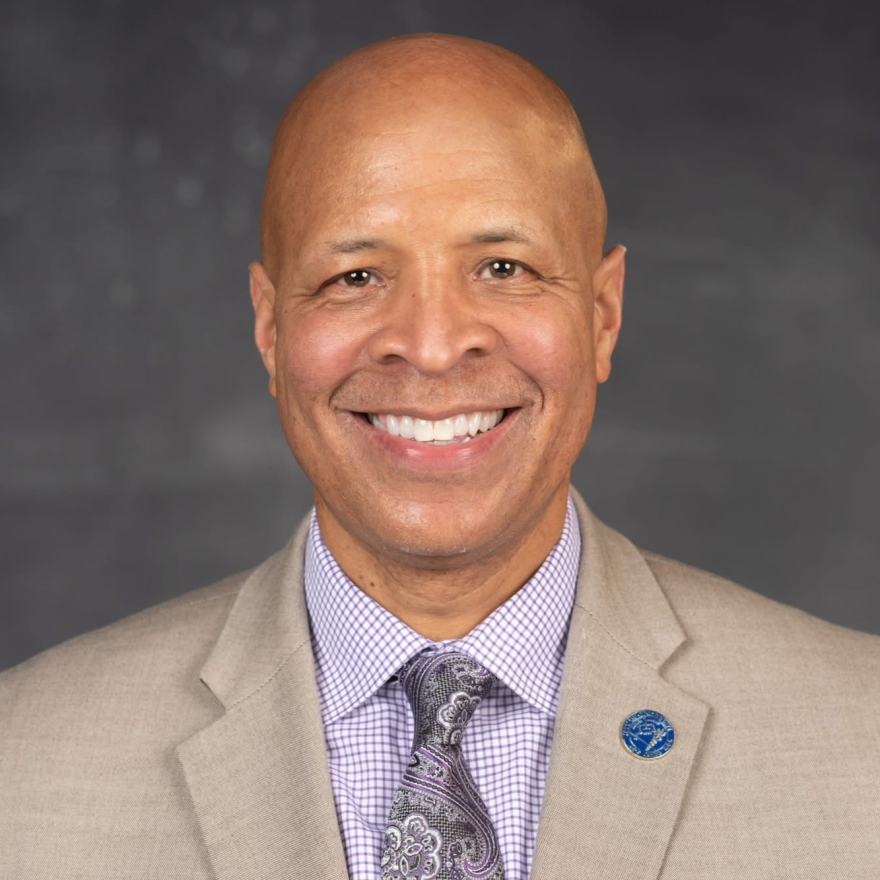
Party endorsement: Democratic
Age: 62
Neighborhood: Mt. Airy
Campaign website: scottyforcincinnati.com
Incumbent: Johnson was first elected in 2021 and re-elected in 2023. He currently serves as chair of the Public Safety and Governance Committee, and also serves on the Equitable Growth and Housing Committee, Budget and Finance Committee, and Healthy Neighborhoods Committee.
Listen to Johnson's interview on Cincinnati Edition.
Bio: Retired Cincinnati Police Officer (33 Yrs); graduate of Woodward High School; BS in Criminal Law, Bowling Green State University. Certificate in Race Relations, Harvard School Of Law. Ordained Elder Christ Emmanuel Church. Chairman Of Safety and Governance, Co Chair Budget and Finance Cinti. City Council. Seeking Third Term Cinti. City Council.
With federal stimulus now depleted, the city faces a projected budget deficit over the next few years. What do you think City Council needs to do to ensure financial stability?
We must continue to be fiscally responsible. Continue to seek and attract new companies to Cincinnati and increase home ownership
Council has faced accusations of not listening to the community on issues like the Connected Communities zoning reform in 2024 and the Hyde Park Square development in 2025. As a member of City Council, how would you balance community input with the desire to add housing?
We must continue to get input from the communities that are effected by development. We strive to develop partnerships between developers and communities.
Crime has dominated headlines this summer, with national attention on the city. How do you think City Council should work to both reduce crime and address a public perception of safety?
We must continue to follow the data. We must collaborate with our communities, the police department and our federal partners.
If elected, what do you plan to introduce and accomplish during the next two years on Council?
Continue to make safety and affordable housing a priority.
Which major Cincinnati event do you enjoy most and why? (i.e., BLINK, Cincinnati Music Festival, Oktoberfest etc.)
Music Festival, BLINK.
Jan-Michele Lemon Kearney
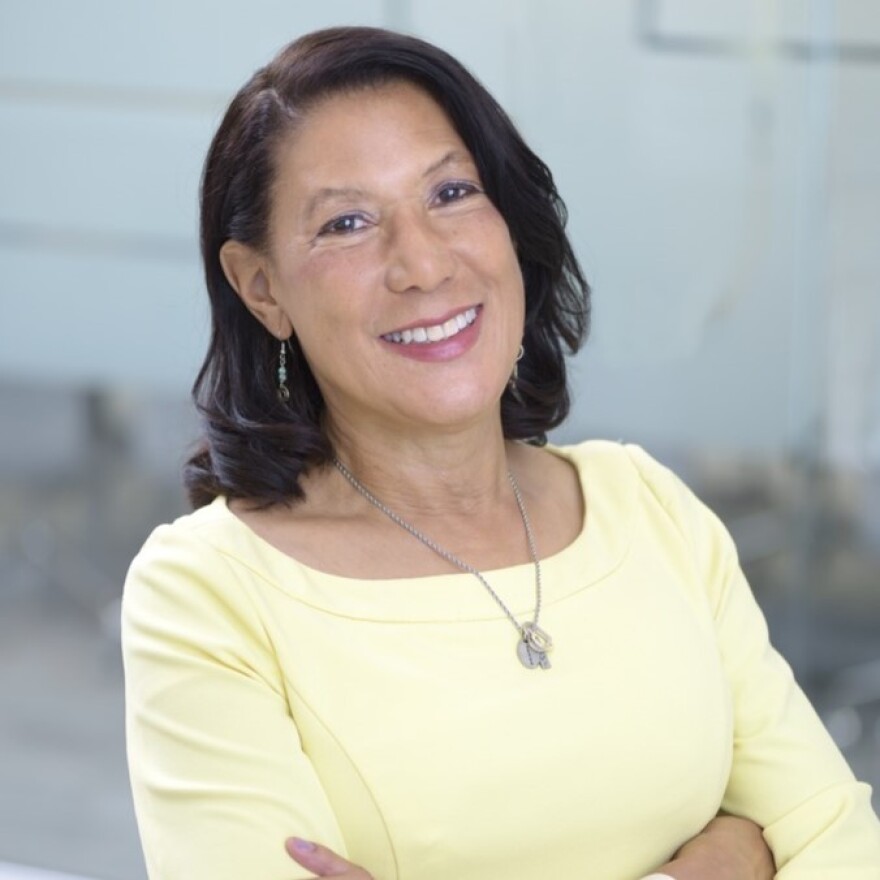
Party endorsement: Democratic
Age: 69
Neighborhood: Avondale
Campaign website: KearneyforCincinnati.com
Incumbent: Kearney was first appointed in March 2020, first elected in 2021, and re-elected in 2023. She currently serves as vice mayor and chair of the Healthy Neighborhoods Committee. She also serves on the Budget and Finance Committee, Public Safety and Governance Committee, and Equitable Growth and Housing Committee.
Listen to Kearney's interview on Cincinnati Edition.
Bio: City of Cincinnati Vice Mayor Jan-Michele Lemon Kearney, Esq.: Proud CPS graduate. Graduated cum laude from Dartmouth College. Masters degree and law degree from Harvard. Attorney, realtor, entrepreneur. President & CEO of KGL Media Group, publisher of award-winning Cincinnati Herald and host of events such as Daddy-Daughter Dinner Dance (1,400 dads & daughters attend) and Cincy Power Awards celebrating small businesses. Appointed to City Council in 2020, and elected in 2021 & 2023. Served as Vice Mayor since 2022. Works to increase economic opportunity for all: created the new Office of Opportunity to close the wealth gap; brought “Building Futures” program to Cincinnati to help unemployed and underemployed individuals attain good-paying union jobs; created small business support programs; a fund for delinquent property taxes so residents can stay in their homes; resources for affordable homeownership; and neighborhood safety initiatives.
With federal stimulus now depleted, the city faces a projected budget deficit over the next few years. What do you think City Council needs to do to ensure financial stability?
Our income tax rate is 1.8. If we raise it back to 2.1, that could give us an additional $50 million, and we would still be at a lower rate than Columbus and Cleveland.
Council has faced accusations of not listening to the community on issues like the Connected Communities zoning reform in 2024 and the Hyde Park Square development in 2025. As a member of City Council, how would you balance community input with the desire to add housing?
We have created community councils to represent and advocate for the neighborhoods that they represent. Ignoring their voices is counterproductive to progress. Rather than trying to work around our community councils, or worse, pushing them aside, it is more efficient and efficacious in the end to work together. In addition, we need to have a clear process that includes developers informing communities of their plans early in the process, and receiving feedback.
Crime has dominated headlines this summer, with national attention on the city. How do you think City Council should work to both reduce crime and address a public perception of safety?
We have many programs and initiatives, some community-based and some hospital-based, that are effective in reducing many types of crime. But to reduce the gun violence that occurs in our city's hotspots, we must add community violence intervention (e.g., Advance Peace, a data-driven program that works in other cities across the country) that involves those at the epicenter of the gun violence. To counter the MISperception that Cincinnati is unsafe, we must show facts: We had 100,000 visitors in Cincinnati during the weekend of the 4th & Elm brawl, and they had a wonderful time. Use social media tools so that the good news goes viral.
If elected, what do you plan to introduce and accomplish during the next two years on Council?
1. Increased economic opportunity: I was on the team that brought "Building Futures" to Cincy to give those from underserved communities a path to good-paying union jobs. I am pushing for after-school, year-round jobs for youth to give them a positive way forward; preparation in tech/AI jobs to ensure that our workforce is prepared for new jobs in the near future; support for small businesses to help them to thrive.
2. Housing: Increase supply of affordable housing and homeownership, including incentives to include housing for low to moderate income families in development projects across the city; funding to convert vacant buildings into housing and to build on vacant land where homes have been torn down; more partnerships with organizations such as Habitat for Humanity; explore innovative models to lower costs such as pre-approved patterns for housing, and modular homes
3. Safety/Quality of Life: Gun violence reduction (see answer to #3 above); innovative program to reduce litter; more greenspaces; mobile grocery stores (in process now by our new Office of Opportunity which Council member Scotty Johnson and I created).
Which major Cincinnati event do you enjoy most and why? (i.e., BLINK, Cincinnati Music Festival, Oktoberfest etc.)
I love them all, but BLINK blew me away this year! There's nothing better than all of Cincinnati coming together with music, art, food, and festivities.
Liz Keating
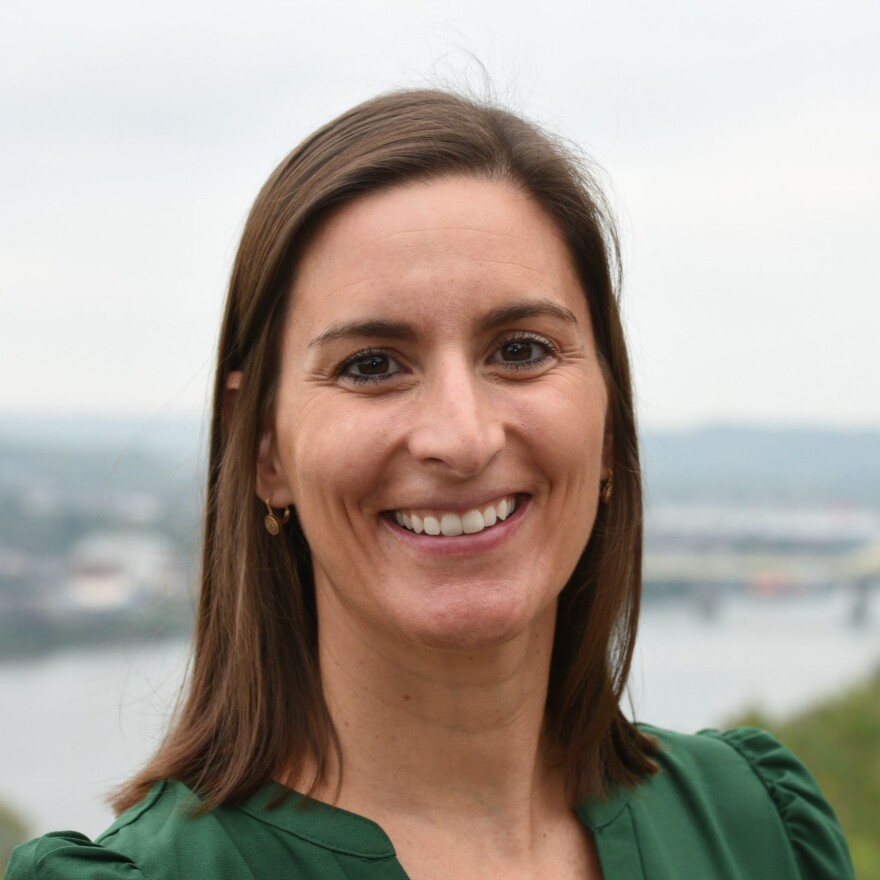
Party endorsement: Republican
Age: 41
Neighborhood: Hyde Park
Campaign website: votelizkeating.com
Former Council member: Keating was first appointed in Dec. 2020, first elected in 2021, and unsuccessful ran for re-election in 2023.
Listen to Keating's interview on Cincinnati Edition.
Bio: Liz Keating previously served on Cincinnati City Council where she was a proponent for bipartisan policymaking in public safety, economic development, and innovation in government. Following her time on Council, Liz served as VP of Government Affairs at the Cincinnati Regional Chamber where she built coalitions to help advocate for more investment and growth throughout our region. Liz spent 10 years as Marketing Director for The Jim Stengel Company, a consultancy and think tank, and the team behind The CMO Podcast. Liz has a degree in Political Science – International Relations from UCLA, where she competed on the swim team and served as team captain.
Liz has also served her hometown of Cincinnati in numerous roles, including as a board member of OKI Regional Council of Governments, Talbert House, Downtown Cincinnati Improvement District, UC Lindner College of Business Advisory Board, Cincinnati Southern Railway Trust, Greater Ohio Policy Center, and the Cincinnati Para-Swimming Open.
Liz was honored as a 2016 Business Courier Forty Under 40, 2023 Senators Taft & Schuler Elected Official of the Year, and the 2025 UC Lindner College of Business Distinguished Service Award. Liz and her husband have two young children.
With federal stimulus now depleted, the city faces a projected budget deficit over the next few years. What do you think City Council needs to do to ensure financial stability?
City Council must have fiscal discipline. That means balancing the current budget and spending efficiently. When Council eliminated the property tax rollback, new revenue was spent on new programs instead of balancing the budget. That pattern cannot continue.
I would start by investing in technology upgrades that help employees work more efficiently, saving both time and taxpayer dollars. Next, we must get the basics right: public safety, trash collection, and reliable infrastructure. Resident perception surveys should guide where dollars go, because if we can’t deliver core services well, we risk losing residents, businesses, and future growth.
Finally, Council must grow the tax base through smart economic development. That means supporting small businesses, attracting investment, and aligning resources with industries poised for growth. Council must manage what we already have with discipline and accountability.
Council has faced accusations of not listening to the community on issues like the Connected Communities zoning reform in 2024 and the Hyde Park Square development in 2025. As a member of City Council, how would you balance community input with the desire to add housing?
Recent housing debates have become lose-lose situations for everyone: the city, neighborhoods, and economic development. Public trust has eroded, and some developers are now hesitant to invest, which could set us back years.
When I previously served on Council, we took a proactive approach by working with neighborhoods before development was even proposed. We identified which buildings should be preserved, updated neighborhood plans, and modernized zoning. This gave residents a voice early, set clearer expectations, and made approvals smoother for developers. We’ve already seen in the urban core how thoughtful, well-planned projects can add housing while respecting historic character. We can replicate that success in neighborhoods if we lead with intentional planning.
Updating Plan Cincinnati, engaging communities early, and setting clear standards allows both neighborhoods and developers to know what to expect. Right now, Council is too reactive, and the stakes are too high. Everyone loses. We need leaders willing to be proactive so neighborhoods get investment, residents feel heard, and housing gets built.
Crime has dominated headlines this summer, with national attention on the city. How do you think City Council should work to both reduce crime and address a public perception of safety?
Solving the crime issue requires balance. City Council must support law enforcement with the resources they need to address violent crime, including fully staffed recruit classes, continued investment in officer wellness so they are equipped to perform at their best, and partnering with County and State law enforcement to meet the demand throughout the city.
Council must also invest in proven prevention programs that address root causes. When I served on Council, I expanded safe summer opportunities by opening city pools — volunteering myself as a lifeguard to ensure kids had safe spaces. I also launched a youth e-sports program in neighborhoods most impacted by gun violence, which has grown citywide and connects teens to tech careers. After the 2022 mass shooting [on Main Street], I was Council’s lead for the Main Street Task Force, bringing together residents, businesses, and city staff to reduce crime through hands-on collaboration.
Safety is both reality and perception. Success must be measured by fewer violent crimes, but also by residents and businesses feeling confident in their neighborhoods. Council should take the lead by supporting law enforcement, scaling proven prevention programs, and actively listening to communities most impacted.
If elected, what do you plan to introduce and accomplish during the next two years on Council?
When I return to Council, my focus over the next two years will be on driving efficiency, safety, and accountability. I will push for investment in technology upgrades that make city government work smarter, save taxpayer dollars, and deliver services faster.
I will prioritize getting the basics right — public safety, paving roads, and eliminating litter — because residents expect reliable services first. That means supporting law enforcement while also investing in proven prevention programs that address the root causes of crime.
Just as importantly, I will bring an independent voice to Council: asking tough questions, driving productive debate, and working to find stronger solutions. My commitment is to listen, do the homework, and make decisions that put the long-term interests of Cincinnati and its residents first.
Which major Cincinnati event do you enjoy most and why? (i.e., BLINK, Cincinnati Music Festival, Oktoberfest etc.)
I love Reds Opening Day because it’s pure Cincinnati magic. The whole city feels alive — people packed along the parade route, The Banks buzzing with excitement, and hope for a World Series Championship is in the air. A cheese coney and a Reds win with my kids feels just as exciting now as it did when I was their age. And let’s be honest — it’s also the unofficial kickoff to warm weather season, which makes it even better in my book.
Dale Mallory
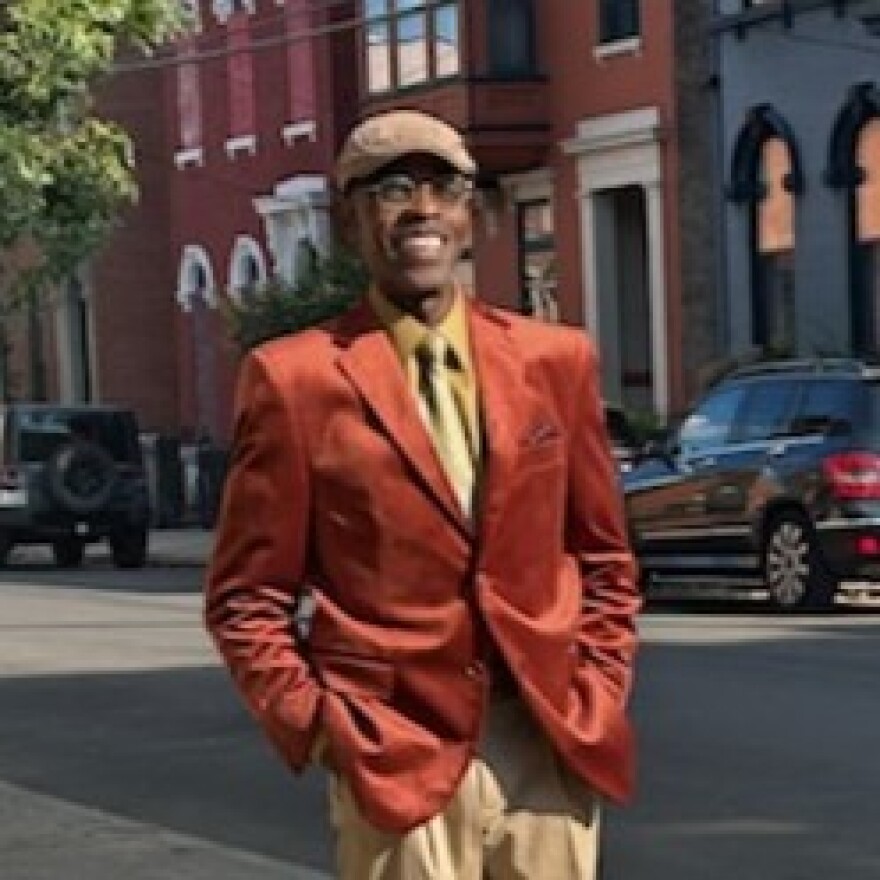
Party endorsement: None
Age: 66
Neighborhood: West End
Campaign website: MalloryForCincinnati.com
Listen to Mallory's interview on Cincinnati Edition.
Bio: I have devoted my life to community service and leadership. Having retired from GE Aircraft Engines, I've channeled my energy into initiatives that uplift our youth, such as the Cincinnati 4-H Initiative, where we provide practical experience in vegetable gardening. I truly believe that by fostering a sense of responsibility and connection to our environment, we can interweave personal growth with community well-being. Join me in making a difference!
With federal stimulus now depleted, the city faces a projected budget deficit over the next few years. What do you think City Council needs to do to ensure financial stability?
Essential services should be our first focus and they have to be funded. Our city needs federal dollars and local government funds from the state. There are also grant dollars that can be leveraged. As a former state representative, I have the know-how and connections to be active in working through this problem.
Council has faced accusations of not listening to the community on issues like the Connected Communities zoning reform in 2024 and the Hyde Park Square development in 2025. As a member of City Council, how would you balance community input with the desire to add housing?
There are a number of ways to address housing that should be affordable. Development can be a positive, but what they were doing in Hyde Park was not conforming to the community and community input should have been the first step Council considered when making those decisions. Throughout this campaign I am calling concerned citizens and listening. As a City Council member I will do the same.
Crime has dominated headlines this summer, with national attention on the city. How do you think City Council should work to both reduce crime and address a public perception of safety?
Let's start with simple things like lighting and greenspace. That uplifts the community and decreases places for crime. We should also recognize local resources we have. We do not need the National Guard. We have a homeland security facility right here in our city. If we collaborate with what is here we can address the problem from within our own city.
If elected, what do you plan to introduce and accomplish during the next two years on Council?
I want the community to feel connected to our Council and we should be listening to them. I have two main issues that I will focus on: lead abatement, which is dangerous to our people, and when buildings are demolished with lead in them it destroys the soil beneath. This is where my two issues go hand in hand: when we clean up the lead, we can grow on the vacant sites which can't happen with lead in the soil. I believe agriculture education and teaching our residents and children to grow on vacant lots can address the food deserts. We can also do things like grow industrial hemp that can be used as a building product and make our residents a living while they are at it.
Which major Cincinnati event do you enjoy most and why? (i.e., BLINK, Cincinnati Music Festival, Oktoberfest etc.)
Oktoberfest!
Linda Matthews
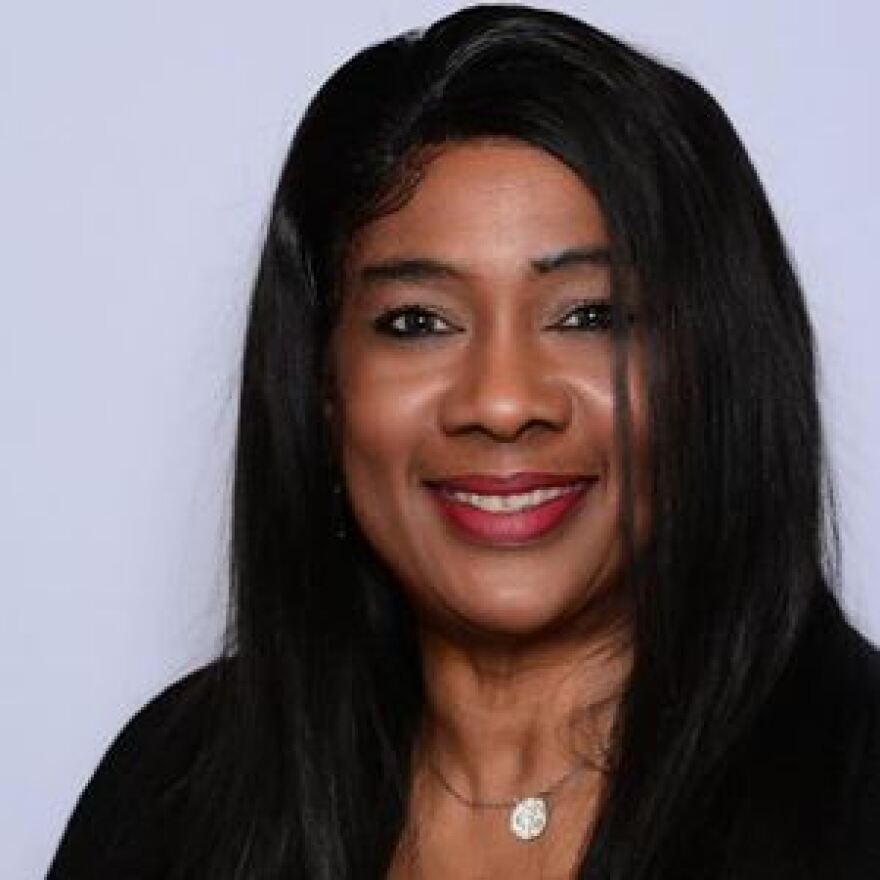
Party endorsement: Republican
Age: 75
Neighborhood: North Avondale
Campaign website: votelindamatthews.com
Bio: Lifelong Cincinnatian, Xavier University, trustee Central State University, VP North Avondale
With federal stimulus now depleted, the city faces a projected budget deficit over the next few years. What do you think City Council needs to do to ensure financial stability?
Reevaluate spending.
Crime has dominated headlines this summer, with national attention on the city. How do you think City Council should work to both reduce crime and address a public perception of safety?
The administration should accept the services offered by our Governor not just two days a month! Cincinnati lives matter to all of us! Citizens wants a safe, and thriving city!
If elected, what do you plan to introduce and accomplish during the next two years on Council?
Increase safety measures in all 52 communities. Safety equals capital, business opportunities creates jobs!
Which major Cincinnati event do you enjoy most and why? (i.e., BLINK, Cincinnati Music Festival, Oktoberfest etc.)
BLINK: the exhibits are so beautiful and family oriented!!!
Brandon Nixon
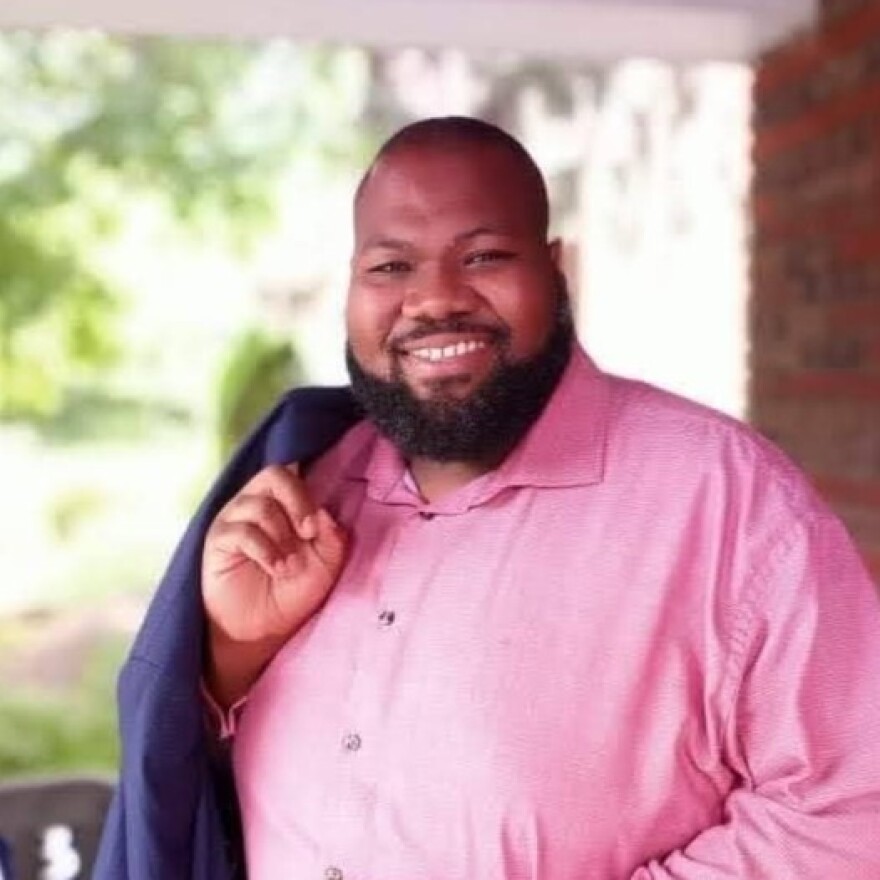
Party endorsement: None
Age: 44
Neighborhood: Westwood
Campaign website: N/A
Listen to Nixon's interview on Cincinnati Edition.
Bio: Brandon Nixon, born and raised in Elyria, Ohio, has lived in Cincinnati for six years and is deeply committed to youth programs and opportunities. As a former member of the Kennedy Heights Community Council, he has worked to mentor young people and create pathways for education and workforce development. Now running for City Council, Brandon is focused on strengthening public safety, expanding affordable housing, supporting small businesses, and ensuring every neighborhood, including its youth, has a voice at City Hall.
With federal stimulus now depleted, the city faces a projected budget deficit over the next few years. What do you think City Council needs to do to ensure financial stability?
City Council must prioritize essential services, cut waste through audits, and grow our tax base by supporting small businesses, attracting employers, and encouraging housing development. We should also use public-private partnerships to reduce costs and rebuild reserves to ensure long-term financial stability.
Council has faced accusations of not listening to the community on issues like the Connected Communities zoning reform in 2024 and the Hyde Park Square development in 2025. As a member of City Council, how would you balance community input with the desire to add housing?
I would ensure early and meaningful community input while also moving forward with responsible housing growth. By listening to residents’ concerns and addressing issues like traffic, parking, and greenspace, we can add housing in ways that keep neighborhoods strong and affordable.
Crime has dominated headlines this summer, with national attention on the city. How do you think City Council should work to both reduce crime and address a public perception of safety?
City Council should support community-based policing and invest in prevention programs like youth opportunities, mental health, and jobs. At the same time, improving transparency and communication will help build trust and strengthen the public’s sense of safety.
If elected, what do you plan to introduce and accomplish during the next two years on Council?
In my first two years, I will focus on neighborhood safety, affordable housing, and support for small businesses. I also plan to invest in youth programs and workforce development while pushing for more transparency and accountability in city government.
Which major Cincinnati event do you enjoy most and why? (i.e., BLINK, Cincinnati Music Festival, Oktoberfest etc.)
My favorite major Cincinnati events are BLINK and the Cincinnati Music Festival. BLINK showcases art and creativity while bringing people from all neighborhoods together, and the Music Festival highlights Cincinnati’s rich cultural history and draws national attention to our city. Both events create pride, unity, and economic impact while showing the best of what Cincinnati has to offer.
Evan Nolan

Party endorsement: Democratic
Age: 42
Neighborhood: Oakley
Campaign website: VoteNolan.com
Incumbent: Nolan was first appointed in Oct. 2024. He is currently serving on the Budget and Finance Committee and Equitable Growth and Housing Committee.
Listen to Nolan's interview on Cincinnati Edition.
Bio: I grew up on the West Side and graduated from St. Xavier High School and the University of Pennsylvania before working as a consultant for IBM, first with the U.S. Air Force in the Pentagon and then with the U.S. Postal Service. I returned to school and earned a law degree from Georgetown University and then served as a legal fellow for U.S. Senator Sherrod Brown.
Since returning to Cincinnati, I have worked as a lawyer representing family-owned businesses and spent much of my free time engaging with the community. I served eight years on the Oakley Community Council (five as Vice President and all eight as Chair of Economic Development & Zoning Committee) and three years on the Session of Elders at Knox Presbyterian Church. I have also volunteered for candidates up and down the ballot, from presidential campaigns to congressional, mayoral and other City Council campaigns. In 2022, I joined the City’s Law Department and served as counsel to the Planning Department and Planning Commission. The next year I managed the local Democratic Party’s successful coordinated campaign.
In addition to my work on City Council, I continue to work as a lawyer, enjoy coaching my daughters’ sports teams, and remain an active member of our church.
With federal stimulus now depleted, the city faces a projected budget deficit over the next few years. What do you think City Council needs to do to ensure financial stability?
City Council needs to focus on growing the city and growing the city more equitably. The city thrives when it’s in growth mode, and we have great opportunities to grow across all 52 neighborhoods. When we use economic development tools creatively, we can promote and spur the development of much needed housing stock and in our neighborhood business districts to attract more residents and create more jobs. Growing the city helps generate more revenue and provides the much needed funds to maintain and improve public safety, public services, and parks and recreation and to leverage for support of social services being provided by our nonprofit partners.
The city needs to finish closing the gap on deferred obligations across city departments to avoid major capital expenses in the future. We must continue investing Cincy on Track funds from the Cincinnati Southern Railway sale to catch up on deferred infrastructure repairs all across the city. We must make investments in technology, equipment, and fleet to create efficiencies and avoid the costs that come when capital assets are outdated. It is crucial to invest in the programs we know have a record of helping close the racial wealth gap and health gap to grow the city more equitably.
Council has faced accusations of not listening to the community on issues like the Connected Communities zoning reform in 2024 and the Hyde Park Square development in 2025. As a member of City Council, how would you balance community input with the desire to add housing?
From my time on a community council, as a real estate attorney, as counsel to Planning Commission, and recently as a member of City Council, I am too familiar with this dilemma, but I also see a viable path forward. First, we need to update Plan Cincinnati. The city’s overarching master plan is becoming outdated and its priorities don’t align with those of today. It was last updated in 2012, following 60 years of population decline. We’re now a growing city and need to refocus priorities on adding to our housing stock at all price/rent levels and building back our neighborhood business districts. Second, we need to update our neighborhood plans across all 52 neighborhoods. With community input and city guidance, we can lay the groundwork for future development that is better received by all. Third, we must proactively engage community stakeholders, including residents, businesses, public partners, and potential developers, in serious discussions about development opportunities. Information must be shared in all directions. The city should hear from residents about needs and preferences, and residents and businesses should hear from public partners and potential developers about what development is practical and financially viable.
Crime has dominated headlines this summer, with national attention on the city. How do you think City Council should work to both reduce crime and address a public perception of safety?
Public safety needs to be a joint venture between all public stakeholders. Today, we see a lot of finger-pointing. We need good faith partners who are willing to sit down at the table together and talk about a more collaborative approach. I have been connecting with many of these stakeholders to address what some have called “the revolving door of justice.” I believe we need to implement more transparency, communication, and process in the criminal justice system. It appears that there are several real opportunities to update technology to improve the processes and create more transparent access to information about the system. We will then need to better communicate the results to the public, so people understand where issues may lie, and we can all advocate for changes that improve the system and make it more effective at punishing those who engage in criminal activity and ultimately deterring it from happening again. To improve actual safety, we need to look at the policies that have worked here and in other cities and allocate the funds necessary to make those policies work. To strengthen the community’s sense of security, we need to better communicate about the work we are doing and the results we are seeing.
If elected, what do you plan to introduce and accomplish during the next two years on Council?
If elected, I hope to continue doing the work to grow our city and grow it more equitably. We must improve the way that our community members and development partners engage with the city on development. I will push the city to update Plan Cincinnati and the outdated neighborhood plans and to create an Office of Strategic Growth, so that we can spur and promote development of more housing and in our neighborhood business districts. I will push for incentives and funding for development opportunities in the areas of our city that have not seen their share of investment. I will continue to push for funding the proposals in the Financial Freedom Blueprint to address racial disparities, including more funding for the Children Savings Account program and growing the Access to Counsel program. We know these programs work and we must find ways to leverage our funding with other community partners. Finally, I plan to introduce new ideas to address our pothole problem that come out of our Pothole Innovation Lab that I have been leading this year to more efficiently and effectively identify and repair potholes without over-reliance on resident reporting. The status quo is not acceptable, and creative solutions are starting to come together.
Which major Cincinnati event do you enjoy most and why? (i.e., BLINK, Cincinnati Music Festival, Oktoberfest etc.)
There are lots of options, because this city knows how to party! Nothing beats Opening Day. As a child growing up in the late ‘80s and early ‘90s, the Cincinnati Reds became my first love. My grandfather was Carl Lindner’s driver, and Mr. Lindner invited my grandfather, grandmother, and me to his luxury box for my grandfather’s 68th birthday the night that Tom Browning pitched a perfect game! I will never forget when Mom woke me up to watch the last couple innings of Game 4 in 1990. I’ve watched Wire-to-Wire too many times to count. I made the pilgrimage to Cooperstown to watch my childhood idol, Barry Larkin, get inducted into the Hall of Fame. Every spring, those memories come flooding back all on one spectacular day! On Opening Day, this city stops what it’s doing and gathers for a parade and ball game that truly unite every Cincinnatian. It’s impossible not to get caught up in the excitement. I’ve been to every Opening Day since I moved back home in 2011. Opening Day brings fresh hope — it’s a new season, stemming from one of our city’s oldest traditions. Yet it never gets old. As life rushes by, it remains an annual reminder of our pride in this great city!
Meeka D. Owens

Party endorsement: Democratic
Age: 47
Neighborhood: Avondale
Campaign website: votemeeka.com
Incumbent: Owens was first elected in 2021 and re-elected in 2023. She's currently serving as chair of the Climate, Environment and Infrastructure Committee. Also serving on the Equitable Growth and Housing Committee and Budget and Finance Committee.
Listen to Owens' interview on Cincinnati Edition.
Bio: I am an organizer and activist at heart; since 2016, I have consistently worked to authentically and meaningfully engage communities. I have served as an executive board member, fundraiser, and mentor for Cincinnati organizations like Women Helping Women, MUSE Women’s Choir, Make-A-Wish, UMADAOP, and Dress for Success. In 2020, I co-founded the Greater Cincinnati Voter Collaborative to continue my commitment to civic engagement in Hamilton County and help elect progressive candidates. Since being elected to Cincinnati City Council in 2021, I have proudly chaired the Climate, Environment, and Infrastructure committee and served on the Budget and Finance, and Equitable Growth and Housing Committees. I also chaired the Green Cincinnati Steering Committee to help realize a more sustainable Cincinnati. I am proud of legislative successes like investing $4 million in the Green Cincinnati Plan Renewal — fully funded without additional taxpayer dollars. After declaring gun violence a public health crisis, I collaborated with the administration to build a framework for Cincinnati’s approach to gun violence. I led the city’s first ever leveraged support process, ensuring that the city is funding nonprofits in innovative and effective ways.
With federal stimulus now depleted, the city faces a projected budget deficit over the next few years. What do you think City Council needs to do to ensure financial stability?
As leaders, we must intentionally look to the possibilities that exist for us to increase revenue for the city, and decrease expenditures where possible. There is an intersection in these priorities to find greater efficiency for the city, and use the data we have available to make educated, intentional investments to facilitate our city’s growth.
We need to do a thoughtful examination of all city revenue, and compare our growth and revenue with peer cities. We must be asking ourselves how we can stay competitive as a city on the national stage, while increasing revenue to benefit our residents.
We must look at expenses through a critical lens, and uplift the departments with high ROIs for the city’s future. When we invest in climate and sustainability centered projects, we increase our potential for financial stability in the long term. While residents have felt the increase in energy cost, so has the city. Investing in renewable energy and improving tree canopy in our neighborhoods can lead to lower energy costs, and is an imperative investment to long-term fiscal sustainability.
Council has faced accusations of not listening to the community on issues like the Connected Communities zoning reform in 2024 and the Hyde Park Square development in 2025. As a member of City Council, how would you balance community input with the desire to add housing?
We have to create equitable spaces for community members to give feedback on the investment in development for the city of Cincinnati. This includes, but should not be limited to, public comment and community council meetings. We cannot expect the weight of growth for the city at large to be on a dozen neighborhoods, when all neighborhoods deserve to see intentional, equitable development that increases housing stock, utilizes resources we have available — like parcels in the land bank, and supports increased quality of life for our residents.
It will take intentional development across our city’s neighborhoods to close the gap in housing stock, and I look forward to working with all 52 neighborhoods to envision a growing Cincinnati.
Crime has dominated headlines this summer, with national attention on the city. How do you think City Council should work to both reduce crime and address a public perception of safety?
We must improve our communication with the community, and improve community transparency at large. Creating feelings of safety in our residents is not a one-step project, and is not universal across all 52 neighborhoods. What feels like safety in Bond Hill, may not be the same in the Central Business District. Safety is not a checklist, but an ongoing culture shift for residents of the city of Cincinnati. We have to do better. In the long term, City Council needs to be more hands-on with funding that we can control, to ensure that all community resources, including the Cincinnati Police Department, have the tools they need to serve residents.
If elected, what do you plan to introduce and accomplish during the next two years on Council?
My office plans to enact an agenda that is focused on investment in families of our city. We need to see support for families and our city’s young people, now, more than ever. This isn’t about one policy, it is about wraparound resources for residents that are also driven by listening to the needs of the community.
I will continue to champion policies that support basic needs; strengthen the housing ecosystem by providing quality housing, the ability to find and afford it, creating conditions for a strong workforce, a green workforce; with a specific focus on youth, and increasing incentives for affordable housing projects. We know that in the back half of my current term, the effects of the big ugly bill will affect families more than anyone.
Providing the resources families need is essential to building a stronger and healthier community. Investing in our Rec at Night programming, making parks more accessible, and activating third spaces in communities are good things to focus on. In addition, we must continue to ensure that our funding processes for nonprofits are highly leveraged for impact.
Which major Cincinnati event do you enjoy most and why? (i.e., BLINK, Cincinnati Music Festival, Oktoberfest etc.)
Black Family Reunion. When you've grown up in Cincinnati, there is a magical feeling at BFR when you get to connect with people from across the community. From the first time I participated in the parade as Miss Black Teen Cincinnati to the first time I participated as an elected official, the memories are always special. You see the notable giants and icons from the Black community who have helped shape Black culture in Cincinnati. It truly is a feeling that inspires me to keep serving Cincinnati.
Raffel Prophett
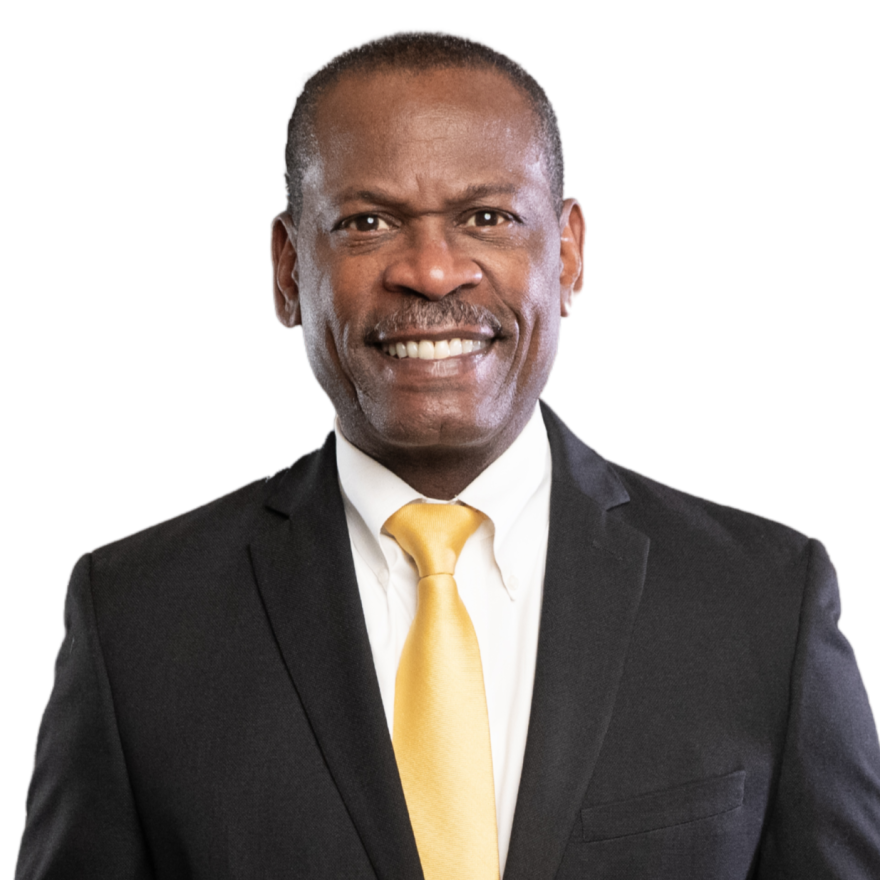
Party endorsement: None
Age: 65
Neighborhood: Avondale
Campaign website: prophettforcincy.com
Listen to Prophett's interview on Cincinnati Edition.
Bio: I am a proud military veteran, retired firefighter, and dedicated community activist who has spent his life in service to others. I bring courage, discipline, and compassion to every challenge I face.
A lifelong Cincinnatian, I have dedicated three decades to the fire service, rising through the ranks with a deep commitment to public safety, teamwork, and integrity. I also served honorably for 32 years in the U.S. military, where I developed the leadership skills and mission-focused mindset that continue to define my work today. I am a passionate advocate for social justice, sustainability, and equitable urban development. I hold a master’s degree in urban sustainability, grounding my activism in data-driven solutions and a vision for resilient, inclusive communities. I focus on building bridges between neighborhoods, advocating for underserved populations, and ensuring that all voices are heard in local decision-making.
I am a devoted family man — married and a proud “girl dad.” My daughters inspire my ongoing commitment to creating a better, more just world for the next generation. I lead with heart, purpose, and an unshakable belief in the power of service.
With federal stimulus now depleted, the city faces a projected budget deficit over the next few years. What do you think City Council needs to do to ensure financial stability?
As your next Council member, I believe we need to tackle our budget challenges with both fiscal responsibility and progressive values. The city faces a projected $16 million deficit next fiscal year, and this is the first time in five years we're addressing a budget deficit without federal stimulus funding.
My approach would focus on three key areas: first, we need sustainable revenue solutions that don't burden working families — this means exploring progressive taxation options and ensuring large corporations and developers pay their fair share. Second, we must prioritize investments that generate long-term savings, like preventive social services, infrastructure maintenance, and energy efficiency upgrades. Third, we should leverage the revenue from the Cincinnati Southern Railway sale strategically for one-time capital investments while building recurring revenue streams.
We can't cut our way to prosperity. Instead, we need smart investments in our people and infrastructure that create economic growth and reduce future costs.
Council has faced accusations of not listening to the community on issues like the Connected Communities zoning reform in 2024 and the Hyde Park Square development in 2025. As a member of City Council, how would you balance community input with the desire to add housing?
I understand the frustration many residents felt about the Connected Communities process. While City Council approved the zoning reforms on June 5, 2024, the perception that community voices weren't adequately heard is a real problem we must address.
As a Council member, I would establish mandatory community input periods that are truly accessible — evening and weekend meetings, multiple languages, childcare provided, and online participation options. But we also need honest conversations about our housing crisis. The Connected Communities reform aims to increase housing supply near business districts and along major bus routes by facilitating "middle housing" development, which is exactly what we need.
I would create neighborhood liaisons and ensure that any major development includes genuine community benefits, such as affordable units, local hiring requirements, and improvements to parks or infrastructure. We can add housing AND listen to communities — it's not an either/or situation.
Crime has dominated headlines this summer, with national attention on the city. How do you think City Council should work to both reduce crime and address a public perception of safety?
The national attention on Cincinnati's crime this summer was a wake-up call, but we need evidence-based solutions, not just reactive spending. While police data shows increases in robberies and aggravated assaults in the Central Business District and there have been issues with youth crime and incidents that caught national attention, we must address both the symptoms and root causes.
We must be strategic in our approach to public safety. We must invest in youth programming, mental health services, job training, and community mediation programs. We also need to build trust between police and communities, which means transparency, accountability, and community policing that involves community members in problem-solving.
Public perception of safety is as important as actual safety. This means being equipped to respond to misinformation/disinformation by opportunistic actors. It means providing better lighting, cleaner streets, active storefronts, and spaces where people feel welcome. We need comprehensive approaches that make Cincinnati a place where everyone can thrive.
Public safety comes from investing in people, creating economic opportunity, and building strong communities where crime doesn't take root in the first place.
If elected, what do you plan to introduce and accomplish during the next two years on Council?
1. Public Safety Academy — seven years ago the citizens of Cincinnati voted to establish a public safety academy (PSA). The PSA is a partnership with the city and CPS that will provide career pathways for students into public safety. The PSA is intended to help recruitment and public safety awareness. The PSA will be part of a strategic public safety plan.
2. Rebranding the Cincinnati Human Relations Commission (CHRC) into an independent, community-led organization to reestablish it as a credible, proactive force for equity and inclusion in the city. If it is to effectively bridge the gap between City Hall and underserved communities — it must be rebuilt with independence, accountability, and purpose at its core.
3. Strong mayor, council-manager reform — since Cincinnati adopted the “stronger mayor, council-manager” form of government in 2001, where supporters claimed the intent was to bring more accountability and leadership to City Hall. But in practice, it has led to top-down governance that favors corporate interests — frequently leaving behind the everyday needs of residents, particularly in underserved neighborhoods. I will move to shift power back to the people to be more transparent, equitable, and community-driven.
Which major Cincinnati event do you enjoy most and why? (i.e., BLINK, Cincinnati Music Festival, Oktoberfest etc.)
The Cincinnati Music Festival (CMF) brings people together through music, culture, and shared history. As a lifelong Cincinnatian it has been a tradition for me for more than 50 years. Its legendary lineup brings a mix of iconic and rising stars in R&B, soul, jazz and hip-hop. People come from primarily the Midwest, but others from the country and beyond. It feels like a family reunion. According to the Cincinnati USA Convention & Visitors Bureau, it generates over $100 million annually. The CMF is rooted in Black history and excellence, simply put, “it's the best.”
Stephan Pryor
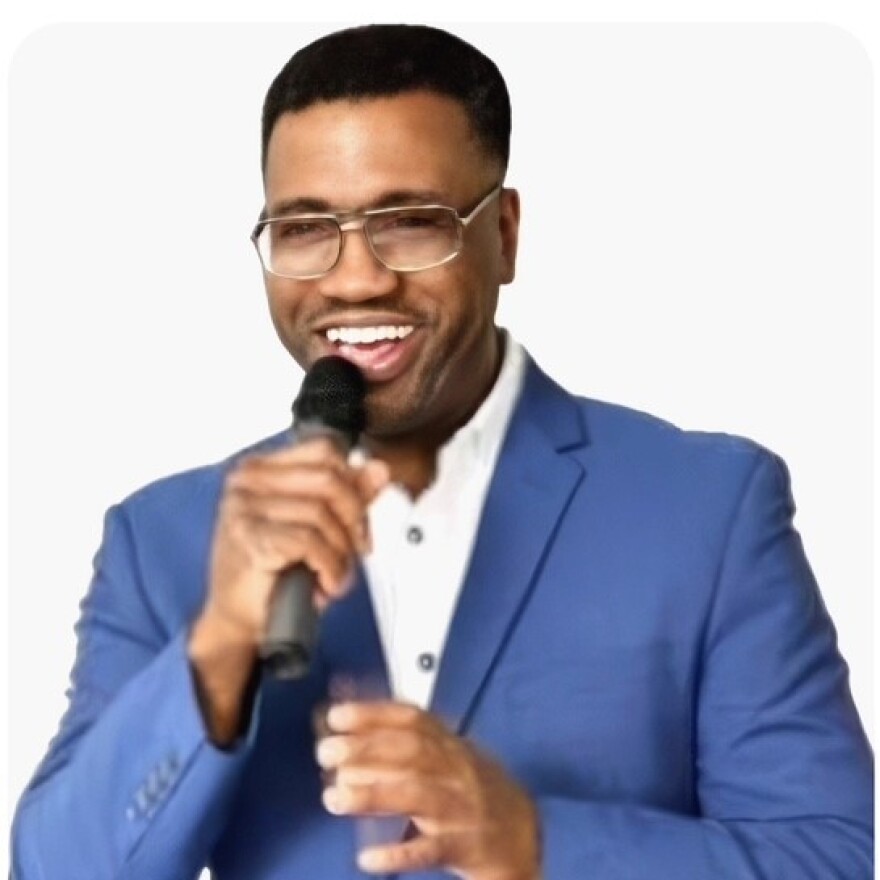
Party endorsement: None
Age: 50
Neighborhood: Over-the-Rhine
Campaign website: N/A
Listen to Pryor's interview on Cincinnati Edition.
Bio: Stephan Pryor, son of Cincinnati Boxing legend Mr. Aaron "The Hawk" Pryor. Born and raised in Cincinnati, Ohio. Community activist, work for Amazon as a delivery driver, volunteer my time with Reach a Youth Teach a Youth nonprofit organization, and advocating for the Western Hills Viaduct Bridge to get fixed, better care for the seniors. Love helping people.
With federal stimulus now depleted, the city faces a projected budget deficit over the next few years. What do you think City Council needs to do to ensure financial stability?
Stop spending.
Council has faced accusations of not listening to the community on issues like the Connected Communities zoning reform in 2024 and the Hyde Park Square development in 2025. As a member of City Council, how would you balance community input with the desire to add housing?
Repeal zoning change in all neighborhoods.
Crime has dominated headlines this summer, with national attention on the city. How do you think City Council should work to both reduce crime and address a public perception of safety?
Youth employment and all neighborhoods with clean streets and cameras in parks.
If elected, what do you plan to introduce and accomplish during the next two years on Council?
A pave the road blitz campaign with brand new blacktop. Fix real infrastructure like bridges.
Which major Cincinnati event do you enjoy most and why? (i.e., BLINK, Cincinnati Music Festival, Oktoberfest etc.)
Music festivals, Blink, Oktoberfest.
Christopher E.C. Smitherman
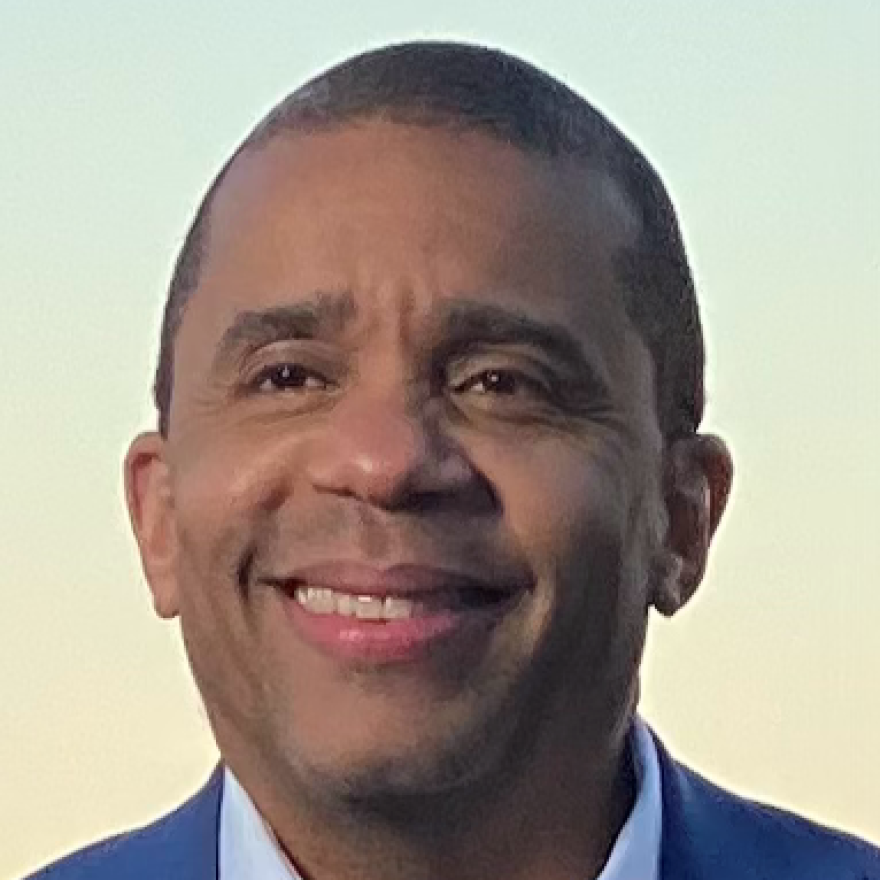
Party endorsement: None
Age: 58
Neighborhood: North Avondale
Campaign website: N/A
Former Council member: Smitherman was first elected in 2003 (serving until 2005); elected in 2011, re-elected in 2013 and 2017 (serving until term-limited at the end of 2021).
Listen to Smitherman's interview on Cincinnati Edition.
Bio: I am the former vice mayor of Cincinnati, the father of five children, and a small business owner, a financial planner. I have been appointed by Governor Mike DeWine to three statewide committees. I currently serve as a Casino Commissioner for the State of Ohio.
With federal stimulus now depleted, the city faces a projected budget deficit over the next few years. What do you think City Council needs to do to ensure financial stability?
Our city has to focus on basis services. That would be defined as sanitation, police, fire, pothole repair, snow removal, etc. If you remember I was one of many citizens that warned that operating the streetcar would be negative to our city budget. I am still unclear if City Hall acknowledges projects like this as a mistake. I was never against mass transit; I communicated the city did not have $4 to $5 million a year that now competes against our core basis services.
Council has faced accusations of not listening to the community on issues like the Connected Communities zoning reform in 2024 and the Hyde Park Square development in 2025. As a member of City Council, how would you balance community input with the desire to add housing?
I served on the City Planning Commission for years. It is impossible to over communicate with neighborhoods about development in their back yard. City Council should be cautious about approving variances in our zoning codes without careful communication with the neighborhood. I would have voted no on both of these public policy decisions and it was clear that the residents of Hyde Park collected approximately 13,000 signatures to stop the development.
Crime has dominated headlines this summer, with national attention on the city. How do you think City Council should work to both reduce crime and address a public perception of safety?
Police morale is at an all time low. This has resulted in police officers not doing proactive policing. City Hall started the summer without a plan and youth have taken over parts of our Downtown beyond curfew with no accountability. This must be reset immediately. The city has a shortage of police officers because of retention of older officers who are leaving DROP and our inability to recruit new officers. This is a leadership issue that can be turned around. The city can support the Collaborative Agreement and support proactive policing. There are some at City Hall who do not believe we can walk and chew gum at the same time. I like the public policy position of providing job opportunities for teenagers in the summer. The city used to do this and I think at a certain level it helped. Lastly, we need to have a real conversation with judges on how they are dealing with citizens that are arrested with a gun.
If elected, what do you plan to introduce and accomplish during the next two years on Council?
It is very important to emphasize to Council that compromise is not a bad word and I support a culture of civility on Council. This will allow the possibility of solving big problems without members of Council taking credit. A culture of getting work done like fighting crime and fixing potholes. There are many streets in Cincinnati that need to be completely redone. I think the city needs to consider getting back into the asphalt business instead of relying on private companies to do 100% of this work. It is important to look at strengthening public policy around how our police chief is managed. My overall focus is going to be delivering basic services well, fighting crime, and doing smart development.
Which major Cincinnati event do you enjoy most and why? (i.e., BLINK, Cincinnati Music Festival, Oktoberfest etc.)
I like Oktoberfest. I think it brings some of the best restaurants together and brings our community together.
Seth Walsh
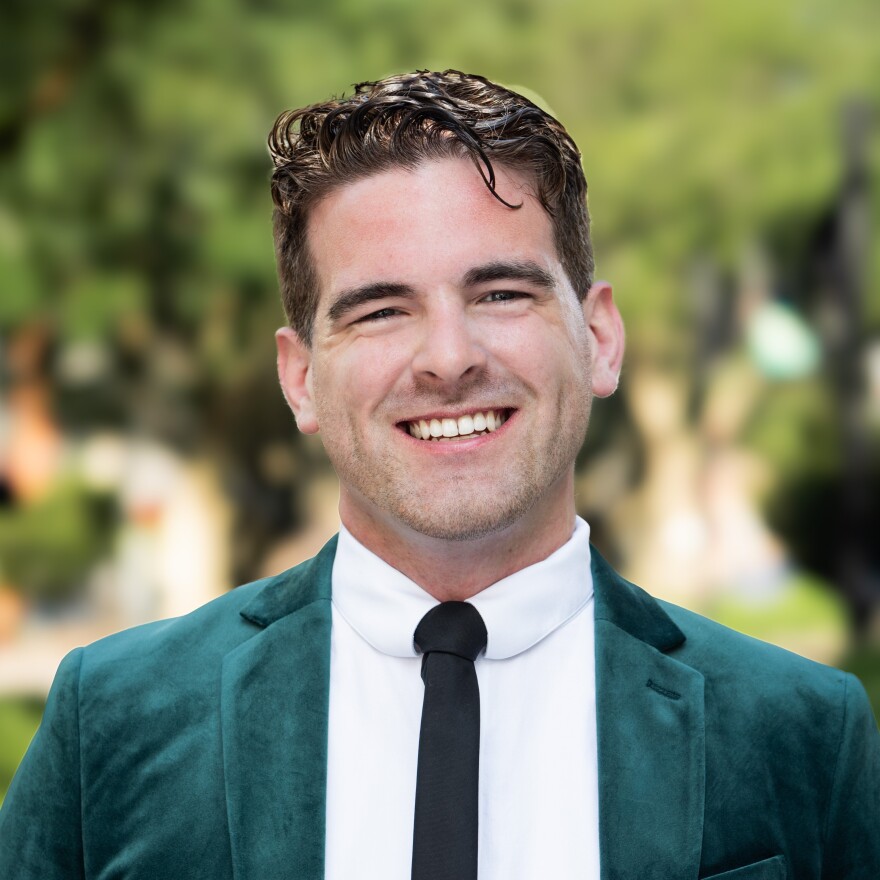
Party endorsement: Democratic
Age: 34
Neighborhood: Central Business District
Campaign website: sethwalshforcincinnati.com
Incumbent: Walsh was appointed in Dec. 2022; first elected in 2023. He's currently serving on the Budget and Finance Committee, Equitable Growth and Housing Committee, and Climate, Environment and Infrastructure Committee.
Listen to Walsh's interview on Cincinnati Edition.
Bio: Seth Walsh is a practical community leader bringing his experience in leading the redevelopment of the College Hill business district to City Council. On Council he prioritizes keeping Cincinnati growing, vibrant, and safe.
With federal stimulus now depleted, the city faces a projected budget deficit over the next few years. What do you think City Council needs to do to ensure financial stability?
It should always be the priority of Cincinnati City Council to invest in our city to ensure we can grow our city’s tax base without putting an undue burden on our residents. I believe that we must consistently be proactive in using the resources we have, namely TIFs, to create economic development investments in all of our neighborhoods to ensure fiscal stability.
Council has faced accusations of not listening to the community on issues like the Connected Communities zoning reform in 2024 and the Hyde Park Square development in 2025. As a member of City Council, how would you balance community input with the desire to add housing?
I am a strong believer that Cincinnati needs to continue to grow our housing market — both affordable and market rate — doing so will decrease the cost of living throughout our city. Connected Communities was a 2 year engagement process in the city of Cincinnati that I was proud to see how many people we engaged with throughout. During the Hyde Park Square development, I personally hosted an engagement session with over 100 residents to hear their concerns before casting my vote. After the vote, I stayed in communication with the residents to help them as they navigated their continued conversations with the development, including helping to host a conversation between them and the developer with Council member Scotty Johnson.
Crime has dominated headlines this summer, with national attention on the city. How do you think City Council should work to both reduce crime and address a public perception of safety?
Our city has an understaffed police department and while at a full complement, an understaffed fire department (the complement was last raised in 2006 with an over 30% increase in calls for service since). If you read the morale reports, morale is low for both in large part due to the dramatic understaffing. I have prioritized during my time on Council increasing our staffing through a lateral police class and by advocating for our fire staffing complement to be increased. This is step one to make sure that we have the adequate public safety to respond to such issues. I also believe that our city needs to be more proactive in getting information out to the public about what is going on and listening when the fears and perception become loudest. This summer, more information from the city would have gone a long way to helping address problems our community was facing.
If elected, what do you plan to introduce and accomplish during the next two years on Council?
I have four focus points for the next term on City Council.
1. Creating the Cincinnati Future’s Economic Development Pipeline where, without increasing earnings taxes, we dedicate excess revenues to the tune of tens of millions of dollars a year to produce more housing in Cincinnati, showing the world that we are open for business. Alongside this, I want to enhance our TIF policies to ensure we are spending this money on economic development activities.
2. I want to lead a Quality Development Initiative, where we for the first time create the tools for our city to ensure that while we are developing, the development is through means we can be proud of. From single-stair policies to initiatives around urban design review, I believe we can enhance our processes and improve our city development.
3. We need to continue to have lateral police classes to hire more police officers and we need to increase our complement to hire more firefighters. These can no longer be ignored.
4. I want to bring the city of Cincinnati to the table to build a new arena. It is misleading that the city of Cincinnati should not financially be involved in this process and I want to make sure that we prioritize this happening sooner rather than later.
Which major Cincinnati event do you enjoy most and why? (i.e., BLINK, Cincinnati Music Festival, Oktoberfest etc.)
BLINK is my favorite event in Cincinnati. Downtown, OTR, Newport, Covington were packed with people, young and old. We had no violent incidents because everyone was moved by the art and experiencing our city. I went all three days last time and I have a picture of the Neil Armstrong mural (my favorite installation) in my kitchen. I can’t wait for it again this time.
Donald Washington
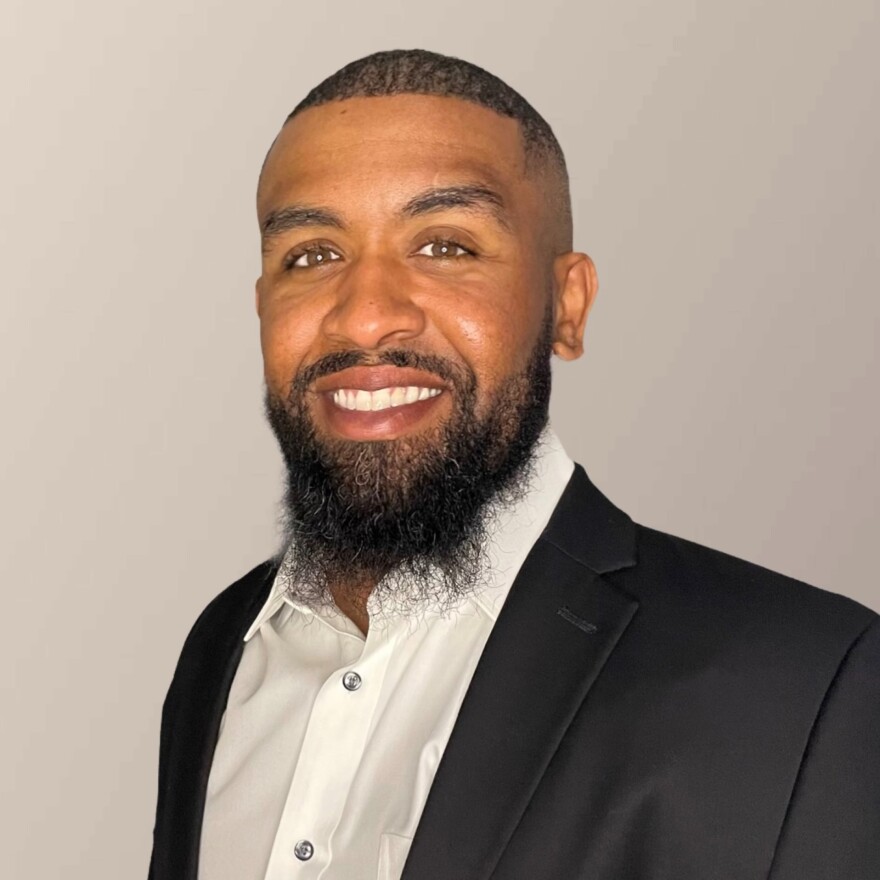
Party endorsement: None
Age: 35
Neighborhood: Camp Washington
Campaign website: votedonaldwashington2025.com
Listen to Washington's interview on Cincinnati Edition.
Bio: Donald Washington is a disabled veteran, entrepreneur, and community advocate running for Cincinnati City Council. With a background in public service and business, he is committed to creating safer neighborhoods, expanding youth opportunities, and ensuring every community has a voice at City Hall.
With federal stimulus now depleted, the city faces a projected budget deficit over the next few years. What do you think City Council needs to do to ensure financial stability?
Council must cut wasteful spending, invest in programs that reduce long-term costs like youth employment and mental health, and grow the tax base by supporting small businesses and neighborhood development.
Council has faced accusations of not listening to the community on issues like the Connected Communities zoning reform in 2024 and the Hyde Park Square development in 2025. As a member of City Council, how would you balance community input with the desire to add housing?
I’ll ensure community voices are heard early in the process and require real engagement before major projects move forward. Growth is needed, but it must be equitable and reflect the priorities of the neighborhoods impacted.
Crime has dominated headlines this summer, with national attention on the city. How do you think City Council should work to both reduce crime and address a public perception of safety?
We need to invest in prevention, not just reaction. That means mental health classes in CPS, youth jobs, and a gun buyback program. These proactive steps reduce crime and build public confidence in safety.
If elected, what do you plan to introduce and accomplish during the next two years on Council?
My top goals are: bringing back the Citizens Committee for Youth, launching a citywide gun buyback program, and implementing mental health classes in CPS to address trauma early.
Which major Cincinnati event do you enjoy most and why? (i.e., BLINK, Cincinnati Music Festival, Oktoberfest etc.)
It’s a hard choice for me. I enjoy BLINK and the Music Fest.
Aaron Weiner
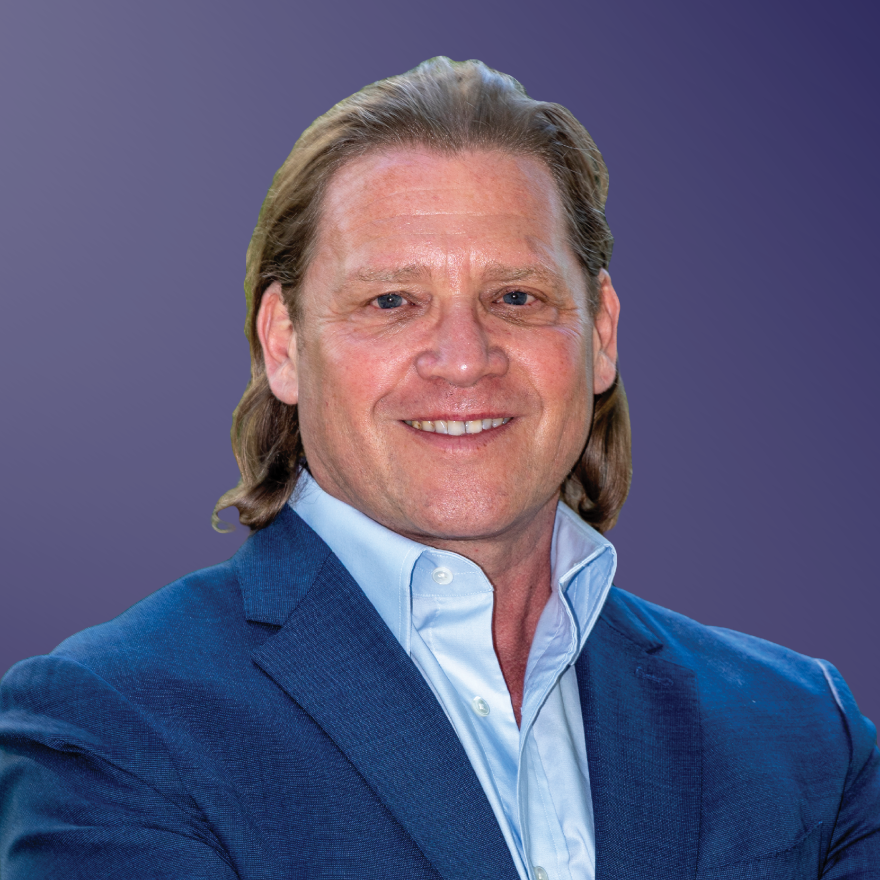
Party endorsement: Charter Committee
Age: 56
Neighborhood: Clifton
Campaign website: weinerforcincinnati.com
Listen to Weiner's interview on Cincinnati Edition.
Bio: Aaron Weiner is a fourth-generation Cincinnatian, a longtime realtor, and an active contributor to numerous civic, cultural, and philanthropic organizations across the city. A graduate of The Ohio State University, Aaron has spent 25 years in real estate helping families and small businesses thrive.
Raised in a family of educators, Aaron’s values are grounded in service and inclusion. His mother is a retired special education teacher with Cincinnati Public Schools and his father was a longtime substitute teacher after retiring from a career in business. Aaron lives in Clifton with his two dogs, Findlay and Gigi, and remains an active presence in community life.
Aaron currently serves on the Boards of the Jewish Community Center and the Jewish Federation of Cincinnati and formerly served on the Board of Governors of the Human Rights Campaign. His passion for neighborhood revitalization and leadership in the arts is evident through his work with the College Hill Community Urban Redevelopment Corporation (CHCURC) as an Advisory Board Member and as Co-Chair of the 2024 Clifton Home and Garden Tour, and as a key organizer of the 2025 Cliftonfest Arts Festival.
With federal stimulus now depleted, the city faces a projected budget deficit over the next few years. What do you think City Council needs to do to ensure financial stability?
Review processes across the board and determine if there are areas to streamline, add technology or reduce redundancy. Evaluate budget and prioritize spending on basic core services first over “pet projects.” Items such as road maintenance, infrastructure and public safety shall take precedence. Continue on a path of new business incubation and housing development to increase tax base. Prioritizing public safety and quality of life issues which will recruit and retain businesses and residents that contribute to tax revenue.
Council has faced accusations of not listening to the community on issues like the Connected Communities zoning reform in 2024 and the Hyde Park Square development in 2025. As a member of City Council, how would you balance community input with the desire to add housing?
City Council has a responsibility to represent the interests of the constituents and the neighborhoods across all 52 neighborhoods. Connected Communities had a rather dramatic impact on all 52 neighborhoods. It also had quite a bit of criticism. In a situation like this where a measurable change is being made to impact the entire city, it may be better served on the ballot. In a situation like Hyde Park, the majority were in support of development which is half the battle. Once the situation escalated, perhaps a charette study may have been a way to effectively move the project along. Moving forward, I would seek common ground and identify potential deal breakers and narrow down items for public feedback. I would also secure that we have sufficient drawings and thematics of the project to encourage neighborhood buy-in and move the progress forward.
Crime has dominated headlines this summer, with national attention on the city. How do you think City Council should work to both reduce crime and address a public perception of safety?
One thing we need to do to make an impact on crime is to increase our police force. We are down about 200 officers. In general, visibility of police in neighborhoods contributes to the optics of being safe. It’s hard to control public perception and everyone’s opinion of safe is different. Data means nothing if optics and public opinion are the opposite and the news is reporting crime regularly. One thing we can do to control optics of crime is crack down on simple things like graffiti. A neighborhood free from this appears safer which impacts new residents and businesses coming in.
If elected, what do you plan to introduce and accomplish during the next two years on Council?
I plan to work on initiatives to support and preserve our stock of naturally occurring affordable housing. As building and land costs continue to rise, and federal funding continues to change, we have an opportunity here. I am working on a plan to recruit and retain police officers. This is a two-prong approach. The first part involves recruiting and retention bonuses. The second part involves providing incentives to get police officers to move into the city through down-payment match programs or rent stipends. This will contribute to reduction in crime by adding police and having them in visible in neighborhoods. It also builds trust within the communities having police as neighbors.
Which major Cincinnati event do you enjoy most and why? (i.e., BLINK, Cincinnati Music Festival, Oktoberfest etc.)
BLINK is my favorite Cincinnati event. It artfully blends and showcases two Cincinnati assets, our arts and architecture. The uniqueness of the event puts Cincinnati in the spotlight and gives us an opportunity to shine. The event brings the city and Tri-State together and also attracts out-of-town and national attention. The festival fuels hotel and restaurant economy as well as retail commerce.



